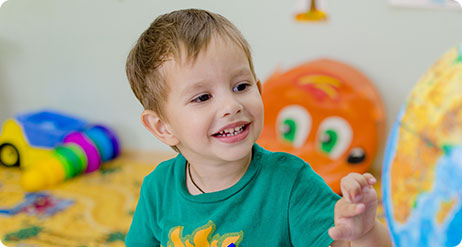Crusaders News
Welcome to the CRCS Blog. We are excited to launch this platform as an added resource for the CRCS community. Our desire is to share information that will assist families as they navigate the journey of raising children with a biblical worldview. This is critical to their success in a world where success can be defined in so many ways.
At CRCS, our mission is to partner closely with families in raising students with godly character who recognize that they are God’s unique creation; that they can have eternal peace through a personal relationship with Jesus Christ; and that they are to serve Him with the talents and gifts with which they have been endowed.
In order to achieve success in this partnership, CRCS provides a distinctly Christian education that leads students to a lifetime commitment to Jesus Christ, the development of Christian character, excellence in academics and service to others. We seek to develop scholars whose Christian worldview impacts the world with the truth of scripture as penned infallibly through men inspired by the Holy Spirit.
In pursuing this mission, there will indeed be challenges and obstacles that educators and parents will encounter. Our desire is to share information with you from bonafide, trusted sources that will inform and empower you as you navigate the pathway of parenthood. Our ultimate goal is to underscore the principles of God’s blueprint for life and make the application of those principles pragmatic and achievable.
Our prayer is that this platform serves as a trusted resource upon which you can rely for help when faced with the challenges and opportunities that life will bring.
Remember these words: In the world you will have tribulation; but be of good cheer, I have overcome the world. John 16:33
Hold on to this when it seems that you are stuck or in a very difficult place on your child-rearing journey. We look forward to providing you with help and resources that will make clear the right choices along the parenting road that awaits you.


It is amazing how early in a child’s life that peer pressure can affect a child. It can be seen in the classroom, on the playground, at lunch, anywhere that children interact. It is safe to say that children are guided by their feelings. Moreover, when these feelings go in a direction that a child does not like, the result is usually something not pretty. For example, take a group of children playing at recess. One of them feels that another child is not playing with them as much as that child is playing with others. So that child runs to the staff and complains that “so-and-so” is being mean. Upon investigating this, the staff member tells the child to go and play with others. The child responds by saying “no…I want to play with _.” Do you get the picture?
Now let’s move this on a few years. A teenager is upset because she hears that a “friend” has a low opinion of her. She hears that a few times. Soon, she sees her self-worth as being determined by opinions that, in the long view, really do not matter. Add to that the flood of social media and this teen can soon reach a very low point.
One of the challenges that children face is that they need to figure out who they are as a person in the spotlight of others. They are surrounded all day by teachers who grade them, by some students that mistreat them, and by parents that are charged with shaping them. All of these pressures together can cause stress that, if not put into the right light, can hinder a child’s social interactions, grades, and confidence.
It is important to remind children that they are created by God in His image. That He has a purpose for their life. That the journey in fulfilling that purpose will include hearing negative opinions from others. By engaging children in this way, these peer pressure experiences will not catch them off guard. They will be prepared for them when they occur. Seeing themselves as God’s creation will go a long way in readying them for the exciting and, often times, scary life journey they will face.
We all strive to be the best person we can be. Make sure your child is prepared for this and embraces both their talents and their flaws. Be sure not to rattle them with non-sense euphemisms such as, “What would the neighbors say?”, or “You are embarrassing me.” Sure, we want children to make good impressions and develop healthy relationships. However, if in doing so, they encounter those who find and focus on the negative, then what those people think does not matter. Ultimately, what should matter is whether or not what your child is doing lines up with what their Creator wants of them.

The Christmas season is in full swing. Or…would it be more accurate to say that the Christmas roller coaster has left the station? Either way, the ups and downs and the back-and-forths that come with this season can have a significant impact on your mood and mindset. Suffice to say that as a parent/guardian (for the rest of this post, we will use the word “parent” to refer to both), you are navigating what can be a flower bed of wonderful experiences as well as a minefield of stressful issues.
If you were to take a moment to reflect, these experiences can include things such as decorating, party planning, gift purchasing, gift wrapping, planning how to spend equitable time with family members, bridging gaps with loved ones with whom a relational issue may exist, finding the finances to accomplish what you feel is important, getting time off work. Do you get the picture?
In the midst of all this, you may possibly have a child (or children) who may be a bit self-absorbed. Their excitement about the holidays revolves around how much fun they are going to have or what great gifts they are hoping to get. This is normal. Again, we say…this is normal. But possibly you may be feeling disconcerted in observing this self-absorption. Deep down inside, you feel that your child(ren) are missing out on how to truly appreciate what you have been doing for them. How to recognize the blessings that exist in their lives.
So how do you get their attention and begin to reshape this kind of mindset? First, realize that it will take time. It will not happen through one activity or one season. But, it can begin by making the effort to put their eyes on someone less fortunate.
Some years ago, two parents whose family attended our school’s church ministry decided to have their children take gifts to a mom whose husband was in prison. This mom had next to nothing to give her kids at Christmas. As the story went, these parents’ teenage children who went on this visit came away feeling quite somber. They did not like the neighborhood. They thought the apartment where this mom was living was dingy. They just felt uncomfortable. But, as the story went, they also were humbled and began to show a bit more appreciation for what they had.
Maybe you cannot do that. But maybe you can go to a local charity and provide some help to local hurting families. Even in the most affluent of areas in this country, there are families who need a helping hand. If you take up this type of action with your child(ren), you just might find that their attitudes get reshaped a bit and that the stress of the season subsides somewhat. This usually happens when one takes his or her eyes off themselves and helps someone less fortunate. That is what Jesus did…for a whole lot of people.

It is that time of year again. The Christmas season is upon us. It can be a joyous, exciting time. It can also be a stressful, frustrating time. There are traditions to enjoy, gifts to wrap, places, to go, and decorations to put up. The list goes on and on. If you are a conscientious parent, you most likely desire that your child appreciate the “true meaning” of Christmas. What exactly is that?
In the 1960 cartoon feature[1] A Charlie Brown Christmas, Charlie Brown (one of the main characters made famous by Charles Schulz in the cartoon strip Peanuts) tells his friend Linus that despite all the traditions of Christmas presents, holiday cards and decorations, he still winds up depressed, but is not sure why. Linus points out that Charlie Brown is the only one he knows that turns Christmas into a problem. Charlie Brown’s depression is only made worse by the rampant commercialism. (sound familiar?)
He encounters Violet and sarcastically “thanks” her for the Christmas card he never received, only for Violet to proudly snipe back that she never sent him one. At the psychiatric booth manned by Lucy (another prominent character), Lucy expresses joy in the sound of jingling money. She tries to diagnose Charlie Brown with various phobias and ultimately decides that Charlie Brown needs more involvement. Lucy recommends that Charlie Brown direct an upcoming Christmas play and offers to help him do so.
At Snoopy’s doghouse, Charlie Brown is further disgusted when he finds out that his dog has entered the doghouse into a lights and display contest with a cash prize. He is finally accosted by his sister Sally, who asks him to write her letter to Santa Claus. When she hints at having an extremely long and specific list of requests, and says she will accept large sums of money as a substitute (“tens and twenties”), Charlie Brown becomes even more dismayed and runs off.
Charlie Brown arrives at the rehearsal, but he is unable to gain control of the situation, since everyone in the play has their own agendas. Charlie Brown decides the play needs “the proper mood” and suggests they should get a Christmas tree. He and Linus take off to get one. They bring it back only to be scorned by Lucy and the other girls who, along with Snoopy, walk off laughing.
At his wit’s end, Charlie Brown loudly asks if anybody knows what Christmas is all about. Linus says he does and, after walking to center stage, recites the annunciation to the shepherds from the Gospel of Luke, chapter 2, verses 8 through 14, as translated by the Authorized King James Version:
“8 And there were in the same country shepherds abiding in the field, keeping watch over their flock by night. 9 And, lo, the angel of the Lord came upon them, and the glory of the Lord shone round about them: and they were sore afraid. 10 And the angel said unto them, Fear not; for, behold, I bring you tidings of great joy, which shall be to all people. 11For unto you is born this day in the city of David a Savior, which is Christ the Lord. 12 And this shall be a sign unto you: Ye shall find the babe wrapped in swaddling clothes, lying in a manger. 13 And suddenly there was with the angel a multitude of the heavenly host praising God, and saying, 14 Glory to God in the highest, and on earth peace and goodwill towards men.”
We share this story with you because it is emblematic of what people for millennia have and will struggle with at this time of the year. We here at CRCS want you to know that eternal peace and goodwill are found in the message of the gospel of Christ.

As we enter 2018, many parents are already preparing for school year 2018-19. Some have already made their decision about where their children will attend school. Others are still in a contemplative and discovery process in pursuit of this decision. One of the most important, if not the most important, decision a parent can make is where and how their children will be educated.
At CRCS during our tours, we regularly hear from parents who are contemplating Christian education for their children. Some parents are not Christians. Nonetheless they are exploring Christian education for different reasons: class size, safety, education quality, and moral character development just to name a few.
If you look out into society, it is apparent that there are many challenges facing young people as they, with the help of one or more parents/guardians, work to navigate their school life. They face such challenges as personal identity, moral decision making, and relational development.
Through this blog platform, we have committed to share resources with you that can serve to address these questions and assist in the decision making process. As such, we have included a link within this post from the website ExploreChristianEducation.com. This particular post addresses the question: Why Christian Education
(https://www.explorechristianeducation.com/blog/2015/11/17/why-christian-education)
As you read this, please remember: there is no such thing as a perfect Christian school. Christian schools are filled with flawed people. At CRCS, we are an open school. That means that you do not have to be a Christian to attend our school. Naturally all of our staff are Christians, committed to delivering education with a biblical worldview. And that is the key to the answer to the “Why” question. What worldview do you want your child’s education to be based on? We trust that this and future resources we share will help you to answer the “Why” question for you.

As 2018 commences, most parents are naturally seeking to improve over the previous year. Reflections on the past often reveal successes and failures. That is normal. That is the human condition. And, if you have been parenting long enough, you know that often success is mostly incremental, not monumental. Overnight monumental success takes years (think about that statement). It requires steadfastness and longsuffering.
So as parents look down the road into 2018 with the natural resolution mindset that comes at this time of year, questions that often arise are: “What can I do differently? What am I missing? How can I connect better with my kids?” The answers to these questions are often quite simple.
Recently a father was digitizing some old VHS family videos (that will tell you how old they were) and uploading them in segments onto YouTube. His goal was to preserve the images for his grandkids and beyond. As he watched these videos, some with his now adult children, he discovered something. He saw normal, everyday life being played out, some captured in humorous moments and other more poignant moments showing personal idiosyncrasies that were not so obvious at the time. Strung together, he realized that it took years of being in his kids’ lives in an engaged way that maintained the good and healthy relationship that he has with them today.
So what can parents do to create and string those moments together? An answer to that can be found in this article entitled “50 Guilt-Free Resolutions” (http://www.focusonthefamily.com/parenting/holidays/new-years/50-guilt-free-resolutions). We believe that within this list you will find the fodder to create those moments and, eventually, the “overnight monumental success” that will show itself years from now.

One of the reasons we often hear from families for seeking a private Christian school is safety. In a recently published, in-depth ACSI survey conducted with the Barna Group, safety was listed at the top of the list of essential school characteristics for more than 90 percent of the parents surveyed. The safety they seek is generally two-dimensional: physical and emotional. Clearly physical safety goes without saying for any school environment. School is the one place where we should expect our children to not be fearful for their physical safety. This element of safety is, naturally, a big part of why parents seek a private school.
But what about the emotional element? This is a bit more complex and elusive. Young children are still developing mentally and emotionally. Much of how they behave and react comes from the emotional, rather than the critically thinking, part of their psyche. Parents, naturally not wanting to see their children in emotional distress, are torn up when their child comes home in tears over something that is emotionally rooted, such as harsh treatment by someone or disappointment that may come from relational or performance challenges. Let’s also be very honest here: this is life.
Enter Christianity. In a Christian school (each of which is filled with flawed people), we have the ability to bring into any emotional/relational challenge the eyes of someone who sees and understands it totally and can offer a solution that is extraordinary. His name is rooted in the adjective that describes the school: Christ. Now even if you are not a Christian yourself, just take a moment and think about this. Parents want their children to develop sound, moral character. To be honest. To have integrity. All of this points to something called TRUTH. In the story about Christ’s suffering, the Roman governor, Pontius Pilate, looked into Christ’s eyes and asked, “What is truth?” Anyone who reads anything about the life of Christ will see that His life embodied truth.
How does this relate to parents potentially seeking a Christian education for their children? It relates in this way: when a teacher, staff member, or administrator is called into a situation that requires some form of conflict resolution for your child, he or she can move the focus of the conflict and the focus of the aggrieved parties along with their concerns to a truly independent mediator whose birth serves as the baseline reference point for all of time. Whether you believe Christ to be God or not, anyone whose life can have that kind of influence on the metric that serves how we document the time placement of world events is a great source for the emotional safety and character development of your children.
Also remember this: opportunities for Christian friends and fellowship abound in a Christian school. Negative peer pressure is downplayed by emphasizing the relationship of each child with Christ and magnifying the Biblical standard of true friendship which calls for love, forgiveness, mutual encouragement, and accountability. The positive influence of a child’s Christian peers combined with character development based on the principles of Christianity’s Founder has no substitute. Hence another reason to send your child to a Christian school.

If you were to stop someone cold and ask them to name someone outside of their family that impacted their life, you can be sure that many, if not most, of the times they will name a teacher or coach. No surprises here, we’re sure. These are people who have a daily and regular influence on the minds and hearts of children, particularly teachers. They are the ones that step into a child’s personal world to pass on the knowledge and information needed to prepare them for the world that awaits. Beyond that, they have a bigger and more subtle influence. Teachers impact students by the way they speak, their attitudes, their reactions to challenges, and how they treat those under their charge. These are just to name a few. So they go beyond being a role model. They become life models.
In the Christian school classroom, something occurs that is indeed powerful. Something that enables a teacher to be used as a mighty instrument. That teacher can bring into the learning discussion the truth found in Scripture. Combined with a motivation fueled by our Creator, this “life model” teacher integrates this truth into the learning process that provides the firm foundation upon which students grow academically, emotionally, and morally. Students begin to see the big picture that God has created. That the world has a purpose. And, within this world, each student has a unique purpose.
The teacher’s commitment compels an open, unashamed love and service to Christ. The government does not hinder these teachings, nor the reading of the Bible, nor prayer; all three are common every day occurrences. The teachers openly demonstrate and model Christian principles.
Will teachers make mistakes? Will they stumble? Naturally. Without question. However in a Christian school environment, students have the advantage of learning that this is a condition of life. They will also learn to embrace the fact that there was (and is) only one perfect Person. And they will learn to look past the flawed ones to that one perfect one who has knitted them together. This will serve them greatly as they move through their academic journey and life. No better time than to start them now learning this in a school that can provide this foundation.

When parents pursue educational alternatives outside of the public school domain, part of their motivation is to find a place where academic excellence exists and the educational quality is high. Research has demonstrated that academic performance found in private Christian schools generally exceeds that found in public schools. This is not an indictment of public schools. However, it is a reliable observation based on the fact that private Christian schools are able to enforce stricter standards of behavior and academic performance. This, combined with smaller class sizes, makes private Christian education a very appealing choice for parents.
In the 2017 ACSI-Barna Report on Christian education, the survey captured and ranked a list of reasons why parents pursue private Christian education. The 5 top reasons are:
- Strong principles and values
- Love for God and people
- Wisdom (ability to apply knowledge)
- Faithfulness and obedience to God
- Leadership skills and abilities
Interestingly enough, of the list of 14 reasons given by parents, financial success came in at number 13. That is not to say that financial success is not important or desirable. But that, in and of itself, does not provide for a purposeful and fulfilling life. Throughout our society financial success can be seen in many quarters. But, when one examines those who have achieved such success, many times a void will show itself. This is the void that our Creator fills by giving us a purpose for which we can live a fulfilling life. Private Christian education is a great resource and environment for children to discover who they are and Whose they are.
No schooling environment is perfect. That goes without saying. But a private Christian education based upon the integration of scriptural truth into the curriculum and into the process of moral and spiritual character development will serve a family tremendously. All that parents need to do is to become an ally of that school and work as partners with teachers and administrators in the pursuit of the true excellence that our Creator intends.

What exactly is a Christian environment for a school? What advantages does it provide a parent who is considering a Christian school? First, it is important to note that a Christian environment is not a utopia. It is not a place absent of sin and flawed people. On the contrary, in any Christian school, you are going to find both. So what is the advantage for having your child in such an environment?
First and foremost, it is important to remember that the ultimate responsibility for a child’s education and upbringing is the parents. They set the priorities and identify the principles by which their children will be educated. So as parents/guardians pursue the environment for their children’s education, choosing a Christian school means that they are selecting and embracing a place whose priorities and principles are scripturally-based. It is an environment that serves as a partner in how parents are raising their children. As such, when children encounter sin and flaws (whether it be their own or that of others), they will be within an environment that points them to truth and principles that comprise our Creator’s blueprint for life.
When you as a parent have to confront your children’s flaws and sins, you can be sure that the partner Christian school you have chosen is aligned with you. Does that mean that you will not encounter challenges with your school? With the staff? With your child’s teacher? Of course not. But it will mean that you and the school will be on the same page when it comes to resolving whatever conflict or pursuing whatever opportunity is before you.
Can your children get a good education at a public school? Sure. But that is not the key question. The real question is, can they get a full education. By “full”, we mean one that combines academic excellence with character development, spiritual growth, and service to others. We submit that such an environment is the domain of a Christian school where students and parents can learn that excellence in academics is just a part of what comprises a full education. In the Christian classroom, your child will learn the Biblical truth absolutely necessary for living a balanced Christian life. Learning how to achieve this balance is the other major component that comprises a full education.

We live in an amazing digital world. Resources that were all just analog and paper less than a generation ago are just a click or two away today. For those who can remember life without email, some (if not most) wonder how people got along without it. That notwithstanding, what is a new technology capability today can become old and passé quickly. Believe it or not Facebook, originally seen as a cutting edge technology environment, is now facing challenges of being regarded as “old”. As technology improves, so does the pace of its advancement and its impact on the culture, on our institutions, and on society in general.
Given this pervasive technological environment within which families live, it goes without saying that, as a parent, being mindful and proactive when it comes to internet security within your household is vital. It is a responsibility that requires forethought, preparedness, and dialogue with your children.
At CRCS, we regularly conduct a review of our IT resources to ensure that we have a safe and secure environment within which students and staff can interact. We encourage parents to conduct the same kind of review for their homes and household. We have provided below a list of actions that parents can take to establish a safe digital environment for their household. This list was developed by Mr. Reid Norris, an FBI agent and Christian school parent at Heritage Christian School in New Berlin, WI
- Talk to your child about potential dangers and consequences of online activities.
- Spend time with your children online.
- Keep the computer in a common room in your house, not the child’s bedroom.
- Utilize passwords, parental controls, and filtering software that is provided by your ISP and browser.
- Access your child’s online accounts and randomly check their e-mail and browser history.
- Teach your child the responsible use of online resources.
- Determine what computer safeguards are utilized by your child’s school, library, and at the homes of your child’s friends.
- Understand that even if your child is a willing participant in any form of sexual exploitation, he/she is never at fault.
- Instruct your children to:
-
- Never arrange a face-to-face meeting with someone they meet online.
- Never send pictures of themselves online to people they do not personally know.
- Never give out identifying information online.
- Never respond to messages that are suggestive, obscene, belligerent, or harassing.
As one can surmise from this list, there are some key positions that parents need to embrace. First, your children’s safety takes precedence over their privacy. Second, you are paying for these tools…so they are yours to inspect and modify at will. Third, BEWARE of allowing your child private smartphone access in their bedroom. A smartphone is a computer too (Point #3). Lastly, pray that your children’s consciences will be convicted should they (and, at some point, they will) find themselves disobeying you when it comes to your household’s rules of engagement with technology. This conviction can only come if you make the Creator known to them and place His will for them center stage.

Here are some lines from a movie. See if you recognize them: “What is pain? Fresh bread! What is fatigue? Underclothes!” They are from the movie “Remember the Titans”, a great movie with many lessons embedded within. This particular scene shows Denzel Washington as Coach Boone training his football team on how to endure pain and fatigue. In essence, he is teaching them not only about football, but also about life.
We bring this up here because of a disturbing trend that has been building over the past 15-20 years. This trend reflects the desire of parents to remove pain, loss, and fatigue from their children’s lives. Parents are doing things such as ensuring their children don’t feel disappointment. And, if they do, parents move quickly to take the pain of disappointment away. If their child doesn’t win at something or if the parents feel that the effort their child has to make is too much for them, they come to their aid with comfort and point out other factors that made it “so hard’ or them. Or the parents fault circumstances or other people for their not winning or succeeding.
Another troubling trend is that of parents actually purchasing teacher manuals for the courses their children are taking so they can have access to the course quizzes and tests. In an elementary school not long ago a parent became quite rude with a teacher who discovered that this parent’s student had simply memorized the answers to the questions from the teacher’s test key that the parent purchased. In the parent’s mind, it was the teacher’s responsibility to simply grade the test based on the answers given. The parent could not be reasoned with regarding the comprehension deficit that his actions were creating in his child.
Yes, this is disturbing. And it is crippling kids in a way that will only show itself when they have to rise up and face the reality of what life is about and what it takes to succeed in any endeavor. Jesus said “In this world you will have trouble.” Notice that He did not say “might have”. Trouble is coming. The only way for future adults to be prepared for it is to learn how to deal with trouble (i.e failure, disappointment) properly at a young age. That means accepting the fact that they failed a test because they did not study enough. Or that they didn’t make a team or cast of a play because they lacked a skill or talent (or they simply did not push themselves hard enough). This does not diminish them. It is an opportunity for them to examine themselves to see where and how they can improve; to pursue those endeavors that complement their God-given skills and talents.
So…partner with your child. Drill them. Work hard with them. Stretch them. But don’t coddle them. If they fall short (and I promise you, they will), come beside them and use that as an opportunity for them to learn how they can improve. Learning and teachability are more effective when the person is open to it. And, if they are taught right, these will come when children embrace the loss or failure for what it is: a teachable moment.

On the morning of February 21, 2018, Dr. Billy Graham breathed his last breath and departed this earth to live in glory with His Lord and Savior, Jesus Christ. No matter where you may stand in regard to your opinion of him, it is fair to say that he fervently believed in his mission to spread the gospel and to bring people to the saving knowledge of the Savior that he knows and with Whom he now resides.
Dr. Graham’s legacy will be spoken of and written about for years to come. This legacy began to unfold when he was called to spread the redeeming message of the gospel of Jesus Christ. Many quotes have been attributed to him during his lifelong commitment to spread this message. He knew that challenges permeate everyone’s life. Many of his messages focused on how we can face those challenges. Below is a sampling of the many quotes attributed to him. Read them slowly and take time to reflect on their meaning:
“God has given us two hands, one to receive with and the other to give with.”
“Courage is contagious. When a brave man takes a stand, the spines of others are often stiffened.”
“Take one day at a time. Today, after all, is the tomorrow you worried about yesterday.”
“If a person gets his attitude toward money straight, it will help straighten out almost every other area in his life.”
“Someone asked me recently if I didn’t think God was unfair, allowing me to have Parkinson’s and other medical problems when I have tried to serve him faithfully. I replied that I did not see it that way at all. Suffering is part of the human condition, and it comes to us all. The key is how we react to it, either turning away from God in anger and bitterness or growing closer to Him in trust and confidence.”
“Our society strives to avoid any possibility of offending anyone – except God.”
“When wealth is lost, nothing is lost; when health is lost, something is lost; when character is lost, all is lost.”
“Comfort and prosperity have never enriched the world as much as adversity has.”
“Tears shed for self are tears of weakness, but tears shed for others are a sign of strength.”
“Being a Christian is more than just an instantaneous conversion – it is a daily process whereby you grow to be more and more like Christ.”
“Mountaintops are for views and inspiration, but fruit is grown in the valleys.”
“The message I preach hasn’t changed. Circumstances have changed. Problems have changed, but deep inside man has not changed, and the gospel hasn’t changed.”
“No parent is perfect; we all can look back and think of things we could’ve done to help our children be better prepared for adulthood. And sometimes it’s best to admit it to them and encourage them to learn from our mistakes.”
“God never takes away something from your life without replacing it with something better.”
“We say to our children, ‘Act like grown-ups,’ but Jesus said to the grown-ups, ‘Be like children.’
Dr. Graham’s time on earth is complete. Ours is not. What are we doing with our time that will have an eternal impact on those we influence? What is our purpose? CRCS is excited to assist families in teaching students the answers to these questions.

It is not uncommon for teachers to encounter students in their classes who are drowsy and, at times, falling off to sleep. This most often is an indication that the student is not getting sufficient rest at night. Ensuring that a child feels rested is a major criterion for their being able to remain alert and attentive in class. If fatigue persists, this can have a detrimental impact on the child’s behavior as well as their ability to listen and comprehend what is being discussed in class.
In today’s fast-paced digital world, there is also the additional challenge of keeping a child’s mind settled down enough so that they can absorb what is coming into it. This requires predictable routines and boundaries on certain activities.
So what can you do to provide the necessary environment for your child to get the rest needed? Here are some steps that you can take to bring that about:
- Make sure your child uses the bed for sleep only. Doing things other than sleeping in the bed can make it harder for your child to fall asleep at night. Make sure that the only thing that your child does in your bed is sleep. No to TV watching, playing video games, or doing homework in the bed.
- Make sure your child stops eating at least two hours before going to bed. Eating too close to bedtime can make it hard for them to fall asleep because your child’s body is still digesting food. Try to schedule the last snack of the evening at least two hours before bedtime. For example if your child’s bedtime is 9:00 PM, then schedule the snack at about 7:00pm. Also, make sure they do not eat too much either. Just have a light snack. For example, try having a piece of toast or a small bowl of cereal with milk.
- Make sure your child goes to bed at the same time every night. Having a set bedtime can make it easier to fall asleep at night because your child’s body will learn when it is time to sleep each night. Make sure that you stick to the same bedtime, even on the weekends. For example, if your weeknight bedtime is 9:00pm, then keep that bedtime on the weekend as well. It is also a good idea to wake up at the same time every day.
- This is a BIG one: Turn off all electronics at least 1 hour before bedtime. Research has demonstrated that having children accessing electronics right before they go to bed affects their ability to calm down enough mentally and emotionally as they are attempting to fall off to sleep. They need at least a 1 hour calm down period so their minds can unplug.
Don’t forget…you know the rhythm of your home and the demeanors of your children the best. Take control of the environment for their benefit. It will bring about predictability which will yield a more restful and peaceful place for them…and for you!

Meet Dr. Susie Elliott. She is completing her 24th year of service on the CRCS staff. She oversees the music program for both our preschool and elementary schools as well as the art program for our elementary school. She also provides music instruction to individual students through her studio. Rather than use text, we invite you to enjoy this video which will make the introduction more up close and personal.
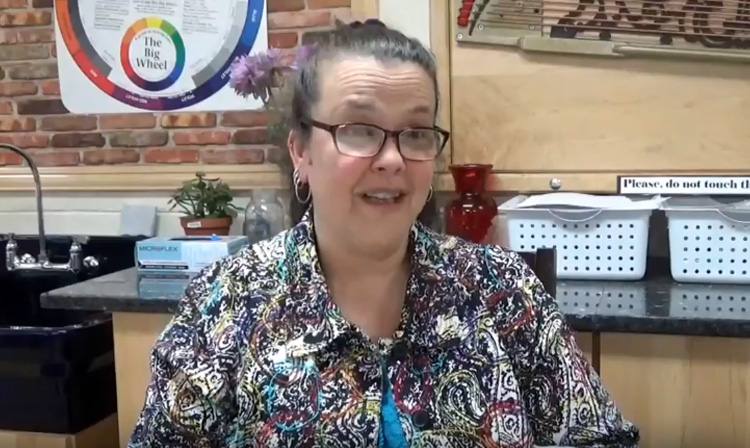
In less than two months, summer will arrive. It’s that time of the year when kids want to relax and have fun. It is also that time of the year during which parents want to have their children engaged in meaningful, fun activities. Look no further. The CRCS Summer camp is the place. Why? Well…
- It is a safe and secure place
- Chapel each morning prepares the kids’ minds and hearts
- An exciting theme awaits them each week
- Fun activities abound (with learning built in)
- Elementary kids have 3 field trips each week, to include a waterpark
- Camp opens at 6:45 AM and closes at 6:00 PM to accommodate parents’ work schedules
- Kids make new friends
- Students who will be new to CRCS in the fall can get more familiar with the campus
So don’t delay! Weeks are starting to fill up. Because a picture is worth 1000 words, we invite you to view this video that captures images from our past summer camps. Judge for yourself. Your child will not be disappointed. (Neither will you.)

With summer almost unofficially upon us (Memorial Day weekend signifies its unofficial start), kids will be manifesting a higher proclivity to spending their parents’ money. Just go to any vacation or recreation spot. It is a good place to observe how kids understand (or don’t truly understand) money, that is, how it is earned, how to properly use it, and more importantly, how to manage it. As kids get older, they tend to become more thoughtful about money. This provides parents with an opportunity to teach them how to save more, spend it wisely, and earn money through responsible efforts.
If you’re feeling guilty because you can’t buy your child that video game system he desperately wants, or you’re asking him to choose between playing soccer or taking music lessons, we have one word for you. DON’T! Now is the perfect time to teach your kids some valuable financial lessons so they can learn that budgeting is how the world really works.
Here are some steps you can follow:
Step 1: Expose Your Kids to the Realities
Sheltering kids from financial realities does them no favors. A good grasp of personal finance is one of the most valuable life skills a person can have. And while previous generations may have been raised with the constant admonishment that “money doesn’t grow on trees!” too many of today’s parents neglect that lesson. It’s time to change that.
Step 2: Tell Kids the Truth
Kids are perceptive. If you’ve been acting anxious and on edge lately due to financial issues within your household, they’ve noticed. Rather than keeping them in the dark, explain (on their level) what’s going on in the family’s financial world. This might mean explaining why vacations have to be cut back or why certain hobbies/activities have to be curtailed.
Step 3: Explain To Them How Much Things Cost
Some parents are surprised to find out that their kids don’t have a very good grasp on what things cost because they have been sheltering them from this. A great hands-on way to open their eyes is to take them on a “money tour” around the house. For example, kids might not understand that hot water costs more than cold water, or that increasing the A/C results in higher power bills. This exercise will teach them how they can conserve and thus help the family save money. You can also pile up all of the bills for the month and have them look at the amount on each one. Show them what the family’s cost of living is and again reiterate the areas where they can play a part in reducing the costs.
Step 4: Giving Gifts
Parents get a kick out of the chance to be liberal while offering cash to their kids. Notwithstanding you should guarantee that they are educated in the idea of responsibility. Show them the significance of not over spending. Ask them every so often how they spend their pocket cash. Show them how to monitor their cash. Urge children to save cash to buy something they’d jump at the chance to have. Youngsters will be more capable with cash when they know the exertion it takes to get it. You can urge your more established teenagers to take up small jobs or offer neighborhood services to earn pocket money.
Step 5: Realize That Kids Learn What They Live
It might seem like common sense, but you are your children’s most powerful instructors. When you ring up a vessel-heap of VISA card obligation, take out extravagant home loans or auto credits, and neglect to save anything, that is the thing that your children come to see as typical. And, in the event that you are displaying unfortunate money related habits, you can’t practically anticipate that your children will “do as I say, not as I do.”
Step 6: Deprogram Them
Kids are constantly bombarded with information about expensive things, whether it’s the fancy sports car they like, the wardrobe of their favorite athlete or actor or the many appeals to luxury in the 40,000 commercials that the American Academy of Pediatrics estimates the average American child sees each year. What they aren’t bombarded with is knowledge on how to manage money effectively. And while schools are increasingly incorporating money issues into the existing curriculum, the broader concepts of personal financial management still aren’t taught. Frightening though it may be, some schools rely on free “educational” materials from the likes of VISA and MasterCard. Watch out! Pay attention to and work to counteract the messages your kids are getting on the “get it now” culture.
In a future blog post, we will provide you with Part 2 on this message of Educating Your Kids on Money.

Step 7: Start an Earnings-Based Allowance
An allowance is a great teaching tool if it is based on your child completing chores and tasks. You don’t have to break child labor laws to find great ways to help your kids earn their allowance rather than just have it handed over to them. A well-implemented allowance program can mimic many money matters that adults face every day throughout their lives. From recognizing the need to earn money to learning how to responsibly and intelligently spend, save, and invest their allowance, children can gain a solid financial footing starting at a young age. This will save them quite a bit of financial pain in the future.
Step 8: Start Them Saving and Investing Early
It’s never too early to start saving, and the sooner you can instill the importance of saving money into your kids the better. After they start earning an allowance, have your kids save a significant portion (up to half) of their allowance money toward longer-term goals, such as college (just be careful about putting money in children’s names as doing so can harm college financial aid awards). Reserve about one-third of their weekly take for savings. As they accumulate more significant savings over time, you can introduce the concept of investing.
Step 9: Reduce Their Exposure to Ads
The primary path to reduced exposure to ads is to cut down on TV time. When kids are in front of the tube, have them watch prerecorded material. You can direct the television viewing of younger children, in particular, toward videos and DVDs. And for older kids, if you use digital video recorders (DVRs), such as TIVO, or streaming services such as Hulu and Netflix, you can easily eliminate ads. But when an ad does sneak under the radar and sets the kids to begging, address it. Explain to your kids that there’s never a good time for frivolous impulse spending—but it’s especially harmful when money is tight.
Step 10: Teach Them How to Shop Wisely
Family shopping trips, whether for groceries or something else, are likely to be your kids’ first encounter with spending. They’ll see you make decisions based on what the family needs, maybe see the occasional coupon used, and will observe how you pay. These trips are a great time to teach them lessons about money and the value of product research and comparison shopping.
Step 11: Introduce the Right and Wrong Ways to Use Credit and Debit Cards
Those plastic cards in your wallet offer a convenient way to conduct purchases in stores, by phone, and over the Internet. Unfortunately, credit cards offer temptation for overspending and carrying debt from month to month. Teach your kids the difference between a credit and debit card, explaining that debit cards are connected to your checking account and thus prevent you from overspending as you can on a credit card. Make credit card usage the exception, not the rule.
Step 12: Encourage Older Kids to Get a Job
An allowance doesn’t have to be the only way for your kids to earn money. Your child’s initial exposure to the work-for-pay world can start with something as simple as a lemonade stand. Depending on age, he or she might do yard work for neighbors or offer babysitting services. Whatever they pursue, teach them to go the extra mile. For example, if your child is babysitting for a family, teach them to go the extra mile by vacuuming or cleaning up the kitchen, even though they were not expected to. This is how you build a reputation of reliability and obtain strong referrals.

We would like to turn to a topic that, if you are in the education field, is often reflected upon. That is the topic of dedication. It goes without saying that many of us have experienced teachers/educators who embody and reflect this quality. It is encouraging and uplifting to see. But what exactly does dedication look like? How deep does it run? How long does it last?
To answer this, we would like to bring before you Rebekah and Abby. They currently serve as our summer camp director and co-director respectively. They are deep in the throes of running what is a vibrant and exciting day camp for our preschool and elementary students. It goes without saying that such a responsibility is multi-faceted, challenging, and hectic. Nonetheless, these two teachers can be seen every day stepping into situation after situation after situation, focusing their attention where needed, juggling concurrent tasks, addressing the emergency of the moment, and keeping a sweet spirit through it all. We decided to capture a list of some of the daily issues:
- An unhappy parent pulls one of them aside to share his concern over an incident that occurred during lunch
- A preschooler is upset, won’t listen to her counselor, so one of them drops what she is doing to sit down and take time to calm that preschooler down (mind you this is one of 50+ preschoolers in the program)
- A volunteer causes some accidental (minor) damage to the facility and one of them has to get it corrected before the day is out
- A field trip is delayed in its departure, impacting the carefully scheduled events that await the campers at the other end, requiring their attention in recalibrating the schedule
- A child gets sick and needs immediate care, requiring that one of them (both of whom are engaged in a camp activity or preparation) address this camper’s condition
- Parents call to request changes to their scheduled weeks, impacting the staff assignments that have been carefully aligned based on preselected weeks
This is just part of a day. This is the norm for any such recreational camp environment. And yet, when you see Rebekah and Abby in action, how they respond, how they speak, how they adapt, it is clear that they have committed their work to the guidance of the Holy Spirit. That does not mean that they don’t battle with emotions and reactions that are part of the human condition. What it does mean is that they realize just how weak their human condition is and that it needs to be submitted to the divine power that Our Lord provides.
So we want to use this post to recognize Rebekah and Abby for their dedication (as defined in this blog tittle) to our summer camp program. They indeed set an example that any teacher, team leader, or counselor would benefit from. And, judging from the images on our Facebook page along with other parental feedback (not to mention that some of our remaining weeks now have waiting lists), they have created an attractive, fun, and appealing environment for our campers.
(By the way, someone said that they saw a stash of candy in the Camp HQ room. The word is that this also gives them a boost when needed! 🙂 )

Yes…you are probably wondering why an article with such a title is appearing on a Christian school blog. Let’s drill down a bit. There is lots of concern today about the younger generations and how they are perceived to have a sense of entitlement. This “sense of entitlement” mindset is not only undesirable but will certainly take a young person down a very regretful road. How so? In looking at the definition of the word “punk”, you will find such descriptors as nonsense and foolishness. In the Book of Proverbs, the bible speaks of a fools. Proverbs 12:15 –“The way of a fool is right in his own eyes, But a wise man is he who listens to counsel.”Restated, when someone refuses good counsel, it will be their downfall.
As a parent you have a duty to shape your children’s mindset in a manner that will keep them from becoming an “entitled punk”. So let’s reverse engineer this point. If you want to raise an entitled punk, do the following:
Believe everything they tell you
Your child will have an encounter with authority. That encounter will be made known to you, at which time your child will give you their account of what happened. As they provide that account, please keep in mind that they are human, sinners, and will be in self-preservation mode. If you assume that everything they are telling you is 100% true and accurate and that the person in authority is incorrect or, even worse, at fault, you are raising a punk.
Reward them for every success that they have
One day, (hopefully) your child will be out in the real world, earning a living. He/she will be responsible for performing in a manner that contributes to their organization’s success. When faced with difficult challenges, you will want them to make the right decision, not because they will be rewarded for doing so, but because it is the right thing to do. However, if you take the posture today that your child needs to be rewarded for everything they do right, you are raising a punk.
Make sure they never experience disappointment or struggle
When does the best learning occur? When you experience something unexpected that brings you pain. Or…when you have to struggle more than you think is fair to achieve the goal before you. Many parents are working to shield their children from pain and struggle. They, in essence, are building a bubble around them that will burst one day. If you work hard to protect your children from pain and struggle, you are raising a punk.
Please remember this. God has created your children and gifted them with talents and abilities. In order for them to grow properly and learn how to use them, they must learn to battle the sinful nature within them, do right because it is right, and embrace the struggle, no matter how hard. As difficult as it may be for you as a parent to witness that, it will pay you and your children wonderful, bountiful dividends…and blessings beyond what you can see today.

The beginning of the school year for children is always a moment for pause. While it is an exciting time, it can also be quite stressful for both the child and the parents. Good organization and planning will help, along with being alert for signs of a child’s unease and aiming to relieve any potential for distress.
Get to know your child’s teacher. It is very important to develop a good, open working relationship with your child’s teacher. That way, both you and your child will feel comfortable with knowing her or him as the school year unfolds. This will also ensure that your child is comfortable in communicating with the teacher when help is needed. Please be sure to have an ally mindset and not an adversary mindset when your child’s teacher reaches out to you. Treating your child’s teacher as an adversary will only build a wall that will make any future communication ineffective.
Obtain the school handbook. It is important to know the expectations of the school in advance. Ask for a copy and read it thoroughly. If you have any questions about the rules, the requests for money etc., ask them as soon as possible. It is also important to review the rules with your child so that she or he is aware of what is expected during school attendance.
Obtain a class schedule. If a written schedule is available, secure a copy for your reference. This will allow you to discuss the day’s activities with your child in advance. Try to link this with the things that you do everyday so that your child begins to see the connection between the daily schedules of activities and the routines you practice in life.
Be organized. From the start, it is vital to get into a routine of being organized, both for you and for your child. Together pack the backpack with the school items. Together select the outfit to wear (or lay out the uniform). In the morning (or better, the night before), it can be a great thing to start preparing lunches together. That way, your child has a stake in making healthy lunches and will eventually evolve into packing his or her own lunch a grade or so down the road. Early good habits last.
Reassure your child. Spend time together talking about school, about your own love of learning and about the friendships that develop at school. Boost your child’s confidence by telling positive experiences and of all the things your child will enjoy about school.
Be supportive but also learn to let go. Give plenty of hugs and reassurance but also be balanced and let go. If you have done a good job beforehand of emphasizing all the positives of attending school and you have involved your child in all the preparations, this should, and likely will be, an exciting and fun opportunity for your child. Tell your child you’ll be waiting for her or him at day’s end and don’t be late!
ONE LAST VERY IMPORTANT THING: put your cellphone away when you pick your child up. The last thing your child needs to see is your talking on your cellphone while he or she is trying to speak with you. If you do that, you are blowing it BIG and nullifying most, if not all, of the other things that you have done in preparation for your child’s school experience.
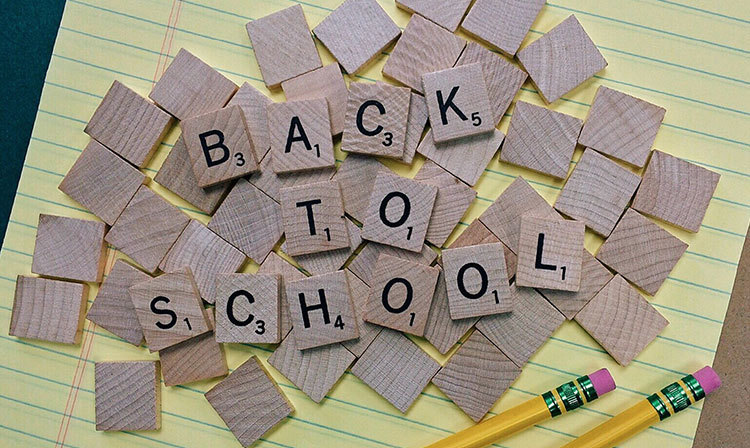
You have to be a hermit today to not see the divisions that exist in many segments of our society. These divisions cross cultural, racial, ethnic, and religious boundaries. But common to most people within these segments is a desire to do good, for their lives to have meaning.
Enter Christian education. What is its role? At CRCS, when we meet with and take a family on a tour, there is one statement that they will always hear: “We teach students that they are created by God for a purpose, that He sent His Son to redeem them for this purpose, and that He desires them to dedicate their lives in seeking out and serving Him in this purpose.” You won’t find that on our website anywhere. It is simply a core summary of what our mission and vision is for our school.
In pursuing this, we (and, of course, Christian educators at large) have come to recognize that what we do with our students has far reaching impacts beyond our school’s walls. These impacts speak to the good, to the meaning that people seek. They speak to the common good. By common good, we are talking about the ripple effect that living a Christ-like life can have on others. It is the impact that is described in the Book of Proverbs, “When the righteous prosper, the city rejoices; when the wicked perish, there are shouts of joy”. When people live by and honor God with their lives, those around them also reap the benefit.
This can be illustrated by the story of William Wilberforce. He was a young Christian man who was elected a Member of Parliament in England in the 1800s. (The movie Amazing Grace is a wonderful depiction of his life.) He struggled with his role as a politician and as a Christian. Mentored by his pastor, John Newton (who was a slave-ship captain who later also became a Christian), Wilberforce dedicated his life to ending the slave trade in the British Empire. It is safe to say that his efforts along with other endeavors he pursued had a tremendous impact on the common good. And…MANY around him reaped tremendous benefits, to say the least. And these benefits went beyond the freeing of enslaved human beings. They also freed those whose hearts and minds were enslaved in the culture of the time.
So here is the question: how many young men and women with the potential of a William Wilberforce are sitting in a Christian school classroom today? That is for God to know. What is certain is that, within the arena of Christian education, we have the great opportunity to raise up young men and women whose impact on the common good in society can be just as significant as that of William Wilberforce. It may not be of the same magnitude as eliminating the slave trade. But, it can be as significant, if not greater, in its effect on the hearts and minds of those in their personal and extended circles of influence. As it was once said, “How many seeds are in an apple? That is easily counted. How many apples are in a seed? Only God knows.” We see each student not as an apple, but as an apple seed, available to be used by God for HIS infinite good.

We would like to do something a bit different with this blog post. Our Administrator recently spoke to parents at an informal gathering. Part of his comments included sharing some tips on parenting. These were captured in audio form and included at the link below. We trust you will find them informative and helpful.

One of the most exciting things you can do as parents is to capture memories that can be enjoyed by future generations in your family. This is certainly a year-round activity for you to pursue. The Thanksgiving and Christmas holiday season provides a focal point for such efforts, given the many family events and activities that take place, i.e. school programs, church performances, family gatherings, etc. Given the digital age we now live in, accomplishing this can be simply a matter of becoming a bit more organized and purposeful, while also learning some techniques and approaches.
In order to assist you on this, we compiled some ideas for your consideration:
A Thankful Box
You might like to make a Family Thankful Box. This would give your family and friends an opportunity to write down the things for which they are grateful over the year. Cover an empty tissue box with fancy fabric, or scrapbook paper and place it in a visible spot along with a post-it notepad and a glitter pen. When you can, take a moment to write down your treasured memory. Sometimes in that lull between Christmas and New Year, gather the family for an oral rehash of these moments in time. Type them up and add a copy to each of your children’s memory boxes for safe keeping.
Legacy Pictures
Below is a list of photos that you can take that will capture key moments and events:
- Your child in their favorite clothes- winter and summer
- A photo of the child with their one or two best friends
- A photo with their classroom teacher
- A photo with their teacher of afterschool activities- for example; volleyball/basketball/tennis/chess/swimming/soccer
- A photo of the child doing their favorite thing- for example; if they love to read, holding up their favorite book of the year, or if they love soccer, a photo of them in full soccer regalia with a ball underfoot
- A picture of the inside of their bedroom
- A picture of them with the neighborhood friends
Child Interviews
Interview your child on video. This can be done on his/her birthday or maybe even on Christmas Eve or Christmas Day. Set up your phone/camera on a tripod or some type of stand and pose some questions to your child. Then save the video for future viewing. Imagine their reaction when they see themselves 10 to 20 years from now! Here are some sample questions:
- What is your favorite food? drink? toy? animal?
- What is your favorite game to play? DVD to watch?
- What is your favorite thing to do outside? Inside?
- Where would you like to go? What is your dream holiday?
- What books do you like to read?
- Who is your favorite teacher? Why?
- How has God blessed you?
Personal Media Channels
There are a number of social media apps that you can use as media channels to capture family pictures and videos for posterity sake.
- Facebook: make a family page for pix and videos
- Pinterest: set up a set of boards to capture pictures for different occasions
- YouTube: use this as you repository for your videos; you can mark them as private or unlisted to ensure they are not available to the public, should you desire so
There are a host of other apps. The key is to simply select what would serve you best in capturing and hosting your visual memories. Just picture your kids as adults looking at and hearing themselves as kids. We are sure there will be some laughs …and some tears.

There is a trend that has developed over the last several years or more. This trend speaks to what many see as a desire for parents to be more of a friend than a parent to their child. It manifests itself when a child tells her mom or dad that she received a consequence for something that she did in school. The child begins to paint a picture that, for the most part, puts the blame/responsibility on someone else. Sometimes it is placed on the teacher for not being fair. At other times, it is on another student, saying that the student made her do something. The natural tendency for a child to build a self-defense story kicks in. This is quite understandable and normal. In fact, it should be expected.
The Issue Arises…
Here is where the issue arises. The parent, hearing this, assumes that their child is telling the absolute truth without error, exaggeration, or omission. The parent then takes the position (internally, if not overtly) that they need to go down to the school and bring this up with the teacher. The parent walks into that conversation with the assumption that the teacher has done something wrong and needs to be corrected, chastised, or, in some cases, even called out for it.
There was a time when a parent, upon hearing about her child’s questionable behavior, kept an open mind. The parent would set up a time to meet with the teacher and bring up the situation, asking questions, and seeking more information before accepting what his child has said on face value. The parent saw the teacher as the extension of rightful authority and would be treated as such until such time that the teacher’s behavior or attitude indicated otherwise.
Instead, today parents are more and more assuming from the beginning that the teacher is, if not wrong altogether, at minimum the center of the problem. Let’s stop and look at this for a moment. What happens to a child when she sees her parent regularly challenge the truthfulness and/or authority of the teacher? Common sense tells you that, at minimum, this can later only lead to a problematic life for that child.
In Overdrive…
Certainly teachers are fallible. We know that. They make mistakes. By definition, as humans, they are imperfect. But what parents need to remember is that most teachers (yes…there are exceptions) are pouring their lives into their students. They are working in overdrive for a good part of the school day to ensure that their students are not only learning but growing mentally, emotionally, and spiritually. At CRCS, our goal is to point students to Christ so that they will seek Him and follow His blueprint for their lives.
So, parents, when your child errs in his/her behavior, please remember that the teacher’s role is one of partner…not adversary. Once a child sees that relationship in action, they will begin to rethink, over time, the error of their ways…and hopefully make efforts to reduce those errors. THAT is the direction we want them to go. Remember this: “Train up a child in the way he should go, And when he is old he will not depart from it. Prov 22:6”

It is that time of year again. We take stock of the years past and start looking to the new year with resolve. We resolve to make changes that we have been putting off. We resolve to be better at what we do. We resolve to not do things that we know are unproductive. We resolve. We resolve. We resolve. But, after a few weeks, we find ourselves slipping back into bad habits, into old mindsets, into a frame of mind that we were trying to change.
It is important to know that this is everyone’s battle. If you are on the resolve path right now, great. It is better than not being on that path. It at least demonstrates that you desire to bring needed changes to your life. If you are a conscientious parent, you are also likely feeling the need bring change to your children’s lives. You can feel the clock ticking as you see them growing up before your eyes, knowing that they will soon exit from under your umbrella of control, nurture, and oversight.
This can be quite daunting. And, with all of this in mind, you are probably wondering “What does this new path to change look like? What can I do to make it more concrete? More tangible?” Know this: there are many valuable resources available for you to assist in the task of personal growth as an individual and as a parent. These two go hand-in-hand. You cannot separate the need for change in your own life from the change that you want to bring to your children’s lives. So what can you do to make this change more tangible? Take a look at some ideas below that you might adopt.
Offer Grace in Frustrating Moments
In the day-to-day tedium of life, it is so easy to be short-tempered and express frustration with your kids. Our minds move fast and can create pictures of what we expect which many times do not line up with what is really happening. So, when that happens, hold your tongue (literally, if necessary) and hug your child. This will probably catch them off guard. It will create a picture that they likely did not expect to see. A mom who had the habit of yelling when she became frustrated with her kids came to realize that she needed to change that. So, she started hugging them. This caused her kids to be more attentive to her when she made corrections.
Let Them Own Their Behavior
Push your kids to take more ownership of their behavior. Don’t attempt to do this in the abstract. Kids are visual. Create a scenario wherein they have to think of what this means for them. For example, ask them to imagine the type of person they want to be in the future — what type of father, mother, sister, brother or friend. Later, bring them back to that conversation and remind them of what they had told you. If you want to really be creative, record it on your phone, save it in the cloud or on a private YouTube channel, and show it to them years down the road. It WILL get their attention.
Build On the Good
Our kids will encounter plenty of negative in this world. There is no lack of naysayers. What is beyond cruel is for a child to experience a naysayer at home or within their close-in personal circle. So, as parents, we must push back on this by balancing both the application of rules and the deepening of our relationships with our kids. Remember…rules without a relationship equals rebellion. Look for the good in your child and build on it. Do that enough and you will be in a better position to point out their flaws and areas of improvement, which are just as important for them to be aware of. Someone needs to do that. Coaches do it. Teachers do it. Parents need to do it as well.
The new year is upon you. Resolve that you will be able to look back at this year (which will go by faster than you think) and see the path of change that you carved out. In the Book of Proverbs, God says this about parenting: “Discipline your son, and he will give you rest; he will give delight to your heart. Proverbs 29:17” Remember: discipline comes from the word “disciple” which means to teach, to train. Isn’t that your calling as a parent?

If you have been paying attention to the news recently, you likely have seen stories about Karen Pence, the wife of Vice President Mike Pence, who has returned to the teaching staff of a Christian school at which she taught for 12 years. Her notoriety as the Second Lady brought much greater attention to her return. You may have also seen much criticism about her serving at a Christian school, because Christian schools adhere to God’s biblical blueprint for marriage and sexuality. This launched, in the saturated social media age within which we now live, a hashtag, #exposeChristianSchools, the purpose of which has been to point out negative issues that relate to attending or working for such an institution.
Imperfect People
Let’s acknowledge here and now that Christian schools are populated by the same people who populate non-Christian schools: sinners. Or, to use a more secularly acceptable term, imperfect people. So it should be no surprise that one can find a situation having occurred in a Christian school that would be deemed troubling. Our society is permeated with efforts to find negative things about people or organizations that have set high goals and standards for behavioral adherence.
What many people don’t often hear about is how attending a Christian school and hearing the simple message of what Christ has done for the world can impact and change hearts. Such was the case at our school three years ago. One of our 5th grade students at the time was having some behavioral issues. His teacher had shared with his mother concerns over his conduct.
“This Christian Thing”
After a bible lesson in class one day, this student asked his teacher about being a Christian. She recalls his being troubled but also how he seemed to be seeking a way to find some kind of peace in his life. In that classroom, later that day, he gave his heart to Christ. A few weeks later, his mom asked to meet with our Administrator. During that meeting, she asked about “this Christian thing” that her son was now espousing. When asked what she was concerned about, she said, “He has changed. He has become more obedient. He is not back-talking like he used to.” [Is this not the proverbial “answer to prayer” that parents seek?] The Administrator said, “Isn’t this a good thing?” Naturally a rhetorical question. Her eyes welled up with tears. She had been battling with her son for a long time. And Someone else entered his life to bring about what she could not.
If people are going to expose Christian schools, let’s also be sure to expose those miracle moments when hearts and minds are changing one at a time by the Person for whom the school is called. Such changes are priceless and immeasurable in their long-term impact. So yes, expose Christian schools and be prepared to look for the good that only Christ can bring.

Ok. Here it is. You are arm in arm with your children as you approach the turn into the last quarter of the school year. You are looking ahead and can see that you are approaching the finish line…the same point from which you started the year. You are tired. You likely have been on an emotional roller coaster along the way. You are finding yourself short-tempered at times. Maybe even down-right angry because of having to face unexpected situations. First, recognize this: this is the normal journey that all parents will find themselves on at some point during their parenting experience. In fact, you will probably find yourself experiencing this more than once between now and when you see them exit your home for the last time.
That is not to say that you have not had any joyful moments. Moments of glee and excitement. They also make up this journey. But it is important to remember that there is an enemy out there. It is called EVIL. And it will use something to throw you off the successful completion of your year: FATIGUE. You will find yourself battling this as you set your sights to finish well this school year with your kids. So what should you keep in mind?
First, remember that God is on the throne. He orchestrates everything to serve His will for us. In Romans 8:28, the Apostle Paul writes “And we know that all things work together for good to those who love God, to those who are the called according to His purpose.” Knowing Jesus personally means that God has an overriding purpose in everything that we experience.
Second, hold your tongue. It is so easy to let something fly out of your mouth when you are tired, irritable, or just plain frustrated. This is a normal human condition. Remember…once it is said, you can’t put it back “into the toothpaste tube”. So seize the thought first, reflect, and hold off on letting the words come out before you have had time to consider the impact of those words.
Third, pace yourself with your kids. Encourage them to keep their eyes on forging ahead and finishing strong. In most athletic competitions, it is the person who has the endurance that usually comes out victorious. And let’s not forget that we are all running our own individual races. So don’t look left or right. Keep your eyes (and your kids’ eyes) focused on doing what needs to be done properly to cross the finish line.
Each school year is a growth year for both parents and students. Growth includes struggle. Improvement will not come without it. Embrace it and learn from it. Don’t forget…your kids are watching!

An interesting thing happened this week among some of our younger students? Possibly you have experienced the same thing. Have you ever been in a conversation with someone about how you spent some time off? Did that person, knowingly or unknowingly, start to emphasize how much of a good time they had? Almost to the point that they became oblivious to anything you were saying? Have YOU ever possibly done that yourself? (Be honest now.)
Well, such was the case recently when some students at recess were together and started to talk about their Easter break. Standing there and watching this unfold, it was quite obvious that each of these students were mainly concerned about two things: 1) being heard; and 2) making sure their friends knew that that their experience was better that any of their other friends.
What Is The Big Deal?
Now you might be thinking, “What is the big deal here? These are only kids. They’re young.” Yes…this is true. But they won’t be young very long. And what they develop as habits now will become a deeper part of their make-up as they get older. Oh…by the way, one of the students in this group had suffered a great personal disappointment over the break which, as the others went on about their individual experiences, brought him to tears as he stood and listened to his schoolmates. He stood and suffered silently.
What is the point here? In scripture (James 1:19 to be exact), God speaks of being “quick to listen and slow to speak.” Nowhere does it specify the age at which such advice should apply. It should start as soon as one can use their ears and mouth to communicate with and understand what another person is saying. What is often forgotten by parents is that you don’t have to teach kids to be selfish. That is an embedded part of the sinful nature…in all of us, young and old. So, the language that we witnessed among those young students can be regarded as “selfish speak”, i.e. “what I have to say is more important than you want to tell me.”
What Is The Solution?
So what is the solution? Parents: it starts with you. Take some pro-active steps. Sit down with your kids and talk about how important it is to listen first. Teach them to ask questions. This is a further indication that the person they are speaking to is being listened to. Model this in your conversation not only with your kids but with your friends and work colleagues. This will take time. But isn’t this worth your time? You never know…your child just might be the one to connect with that someone who has just suffered great disappointment and is waiting to be heard and comforted. That is the definition of being a blessing.

Okay…school is out and the summer has begun. Pools are open and the lazy days are setting in. It is good to slow the pace down and even to have some unplanned lazy days. Research has shown that having some unplanned time is good for the mind as well as for the body. Gives you time to recharge as well as experience a respite.
Having said that, it is also important to keep children’s minds engaged so that they will stay sharp. If they get too dull, it will take much more time when school resumes to get them back in gear. Students lose an average of one month of academic learning over the summer break, according to research from the RAND Corporation. So what can you do to keep those minds sharp?
Below are some ideas that we have uncovered:
- FrankenWords: this is a fast-paced matching game to help your kids experiment with compound words and strengthen their vocabulary. Download a free set of 48 playing cards
- Puzzles: pull out a card table and dump the pieces of a puzzle onto it; make sure it is not too complicated; let everyone attack it individually and as a group
- Reading: several approaches here – have your child pick a book to read; read it to her at night; have a discussion on it while driving (experience has shown that kids really open up when they are in the car)
- Vacation projects: have your child look up key information about the destination for your vacation; have him make a short video with your cellphone telling what he learned and upload it to a private YouTube channel for posterity (they will get a big kick out of looking at themselves when they get older)
These are a few suggestions to keep your kids’ minds active. This will pay big dividends when school rolls around as the mental climb for them to re-engage will not be so steep. And you will have more peace of mind about their preparedness for the new school year. Don’t forget…summers go by fast.

Like any parent, utmost in your mind is the safety of your children. In this ultra-information laden world, it is almost impossible not to know about the dangers that are out there. If you dwell on them, you can become hyper-paranoid. For example, nearly 800,000 children are reported missing each year in the United States. The realization that your child could go missing may be your biggest fear. With summer vacation in full swing, and thousands of children out enjoying the weather, families need to take extra precautions to keep their children safer.
Here are some quick and easy tips from Knowing the Rules… Summer Safety Tips for Parents and Guardians by the National Center for Missing & Exploited Children (NCMEC) to help increase the safety of children in your community:
- Be sure to go over the rules with your children about whose homes they can visit when you’re not there and discuss the boundaries of where they can and can’t go in the neighborhood.
- Make sure children know their full names, address, and telephone numbers and how to use the telephone. Be sure they know what to do in case of an emergency and how to reach you using cellular or pager numbers. Children should have a neighbor or trusted adult they can call if they’re scared or there’s an emergency.
- Teach your children in whose car they may ride. Children should be cautioned never to approach any vehicle, occupied or not, unless accompanied by a parent, guardian or other trusted adult.
- Make sure your children know to stay away from pools, canals or other bodies of water without adult supervision.
- Since daylight lasts longer during the summer months, be sure your children know their curfew and to check in with you if they are going to be late. If you allow your children to play outside after dark, make sure they have reflective clothing on and stay close to home.
- Choose babysitters with care. Obtain references from family, friends and neighbors. Many states now have registries for public access to check criminal history or sex-offender status. Observe the babysitter’s interaction with your children and ask your children how they feel about the babysitter.
- Check out camps and other summer programs before enrolling your children. See if a background screening check is completed on the individuals working with the children. Make sure there will be adult supervision of your children at all times, and make sure you are made aware of all activities and field trips offered by the camp or program.
- Always listen to your children and keep the lines of communication open. Your children are your best source for determining if everything is okay. Teach your children to get out of dangerous or uncomfortable situations right away and practice basic safety skills with them. Make sure they know they can tell you about anything that makes them feel scared, uncomfortable or confused.
Following these tips can help ensure your children enjoy a safer summer. Making safety a priority for the entire family can help prevent abduction.
Additionally, families can sign up for Wireless AMBER Alerts on their mobile phone. The Wireless Foundation introduced this industrywide public service program in May 2005, enabling nearly all of the more than 200 million wireless phone users in the United States to opt in to receive free geographically specific AMBER Alerts as text messages on their wireless phones when an AMBER Alert has been issued for an abducted child in their area.
Lastly, and most importantly, pray for protection over your family. Our Lord knows the darkness of this world. That is why He came to bring light. Knowing Him personally brings the ultimate protection.

As we enter this new school year, remember that to end the year well, you must start well. Many times parents can get caught up with being hyper-busy between home and career obligations. As such, it is easy to miss opportunities which, if taken, would ensure that the school year starts out well for your kids. So here are some tips which will hopefully get you on the right track in accomplishing this.
Get engaged with your child’s teacher
Most schools have an event in which you can connect with your child’s teachers. BE THERE! Let them know that you are their partner, not their adversary. Keep the lines of communication open. Given the digital age in which we live today, there are multiple ways to accomplish this. CHOOSE ONE!
Plan your week well
Use your Sunday afternoons to get a gauge on the upcoming week. Identify obligations and commitments that need your attention. Get your weekly rhythm going. This will take a few weeks. Be flexible and adjust as necessary. DON’T OVERCOMMIT. Parents want much for their children. But having them in multiple extra-curricular activities can put more stress on them than is necessary. Avoid that.
Find a good wake-up routine
It is critical that you not get into the habit of having frenzied, hurried mornings. This only stresses everyone out and can lead to a miserable day…for you and for your children. Avoid arguing. This just pours gasoline on the stress fire. Identify a separate, productive time to resolve conflicts.
Downtime before bedtime
You probably have some kind of screen in your house. Probably more than one. It is vital that you build boundaries around their access, particularly when your kids are headed to bed. Studies have shown that people need to be off their devices at least 45 minutes prior to going to sleep in order to get proper rest. Apply this to your child (and yourself).
Remember this: God has plans for each one of us. He sent His Son Jesus to redeem us in the pursuit of His plans for your children and for you. Seek Him as you prepare for this new school year. Set reasonable goals for you and for your children. This scripture should give you the encouragement that you need:
“God is our refuge and strength, an ever-present help in trouble. Therefore we will not fear, though the earth give way and the mountains fall into the heart of the sea, though its waters roar and foam and the mountains quake with their surging.” Psalm 46:1-3 (NIV)

There is probably no more sensitive time in a parent’s life than when their children start school. They walk them down the hall of their child’s new school, leave them in the classroom and walk out. There are many questions, expectations, fears, and hopes that are running through a parent’s mind. This all goes without saying.
One of those questions may likely be “Is my child ready?” What does it mean for a child to be ready? What does “school readiness” look like? To put it another way, “school readiness” isn’t simply a matter of formal academic training. All of a child’s early experiences, whether at home, in child care, or in organized preschool settings, are educational. If you have doubts or questions about your child’s readiness for formal schooling, there are a number of things you can do at home to optimize his chances of succeeding in the academic arena. Here are a few suggestions:
- Read books aloud with your child. Get him used to handling books and help him recognize the difference between pictures and print
- Engage in informal counting activities. This will strengthen your child’s understanding of numbers. Familiarize him with the alphabet
- Develop reading readiness by promoting your child’s phonological awareness. You can do this by reading books, singing and clapping along with songs, and playing games with rhyming words
- Spend time talking, playing, and cuddling with your child. Take steps to stimulate informal conversation. Give him opportunities to ask lots of questions. Encourage play that promotes creativity, imagination, and problem-solving skills
- If your child has trouble sitting still, practice having him concentrate on a task for a short period of time (ten minutes). Over several months, increase that time until he can remain focused for 30 minutes or so
- Create and maintain a regular routine in your home. Emphasize mealtimes, naptimes, bedtime, etc. Help your child to become comfortable with this rhythm
- Encourage behaviors and activities that develop a sense of responsibility in your child (e.g., simple chores) and that demonstrate respect and courtesy
- Look for opportunities to develop your child’s social skills through playgroups or more formal preschool activities
The bible has much to say about preparing a child for life. The essence of the Christian worldview for parenting is this: it is NOT about them. When they are young, kids naturally feel that it is ALL about them. Your job as a parent is to move them from that end of the spectrum toward the other. To move their hearts and minds in the direction of seeing their life through God’s eyes. Of seeking His will for their lives. In this way, they will be better prepared for what awaits them…which will include both failures and victories.
[NOTE: portions of this article were taken from https://www.focusonthefamily.com/family-qa/evaluating-your-child-for-school-readiness/]

It is never too young (well almost never) and indeed never too late to teach children common courtesies. These go a very long way in embedding desirable behaviors that will serve them well on multiple fronts. This is being lost in some sectors of our society. Why? Some parents assume their children will simply pick these up as they grow. Some let the busyness of life get in the way of taking the time to do this. And some just don’t give it any priority. This is not good.
Not long ago, an employee at a newly established company found himself sharing space with other colleagues in a newly designed workspace. He was aghast as he began to see up close just how lacking some of his colleagues were with their personal hygiene and lack of basic social skills. These deficiencies didn’t just show up. They took root many years before.
So what might you ask are some important courtesies that parents should be teaching their children?
“Hello” and “Goodbye”
It is disappointing to see a young person greeted by someone, whether it be another child or adult, only to see that child ignore the greeting. That is simply being rude. Teaching children social graces such as “hello” and “goodbye, as well as teaching them to acknowledge those speaking to them, is not only a way to develop respect and good manners, but is also a means to develop their social skills. It encourages them to talk and recognize other people’s presence.
Powerful Words: “Please” and “Thank you”
Teach your child to say “please” every time he/she makes a request and to say “thank you” every time someone does something for them. Not only will this show appreciation, but doing this regularly will build a thankful mindset
Ask before you take
When a child takes something from another child without seeking permission, it can, and likely will, create conflict. Not just between the children involved, but also between the parents as well. Teach your children to ask before taking something that isn’t theirs. What do you call it when someone takes something that isn’t theirs: stealing. That is NOT a habit for any child to develop.
Say sorry because you mean it
These days, many people speak the word “sorry” without actually meaning it. The best way to instill empathy and sincerity into your child is by teaching him/her how to say “sorry” when he/she truly feels sorry. The best way for your child to learn this is for YOU to practice it with them. No…not through role-playing, but through your saying sorry to them because an action of yours warrants it.
“Excuse me”
Children are impatient by nature. If they need something from you, they will ask for it right there and then, even when you are in the middle of something. You may have noticed some children interrupting their parent’s conversation with other people, calling out to the mother or father repeatedly, and in return, the parent gets angry with the child for doing so. Refine your child’s upbringing by teaching him/her how to say, “Excuse me.”
Address people with their real names or nicknames
Calling others mean names is already an act of bullying, and when this act gets worse, a simple act may lead to physical violence. Instill in your child that when speaking with others, address them using their real names, whether at school, home, or anywhere. You may tell them to use nicknames when and only if they are given nicknames. Of course, you have to lead by example.
Listen when someone is speaking
Teach your children to never interrupt when someone is talking, to listen patiently and to wait their turn to talk. Yawning and loud burping are unseemly habits that should be avoided when someone is talking. Teach your children that butting into a conversation is simply an offensive behavior.
Greet others with a smile.
This may seem cliché, but a simple smile can significantly change and affect the mood of those people around you. Practicing how to smile often when interacting with others can make a huge difference. If nothing else, the recipient of your smile comes away having had a pleasant exchange with someone, possibly gaining a brighter outlook on his or her day.
Now the Challenge: mark your calendar and make a concerted effort to work on these with your children each day for 21 days straight. Then, take stock in their behavior and make some honest observations. You just might be surprised at what you see.
[NOTE: portions of this article were taken from https://childrenspublishing.com/common-courtesy-for-kids-that-every-parent-must-impart/]

Family conflict is real. It is as old as the scriptures. No one enjoys conflict. It brings stress, tension, and can eat away at relationships. It can also be an opportunity to learn how to better relate to family members. In any family, there will always be arguments. That is what makes them normal. Blood is thicker than mud and these petty arguments can be fixed with parents serving as the referees. Nevertheless, here is a good question: how exactly do you handle conflicts between children?
Here’s a tip. Advise your children to approach the conflict with their sibling(s) in a positive manner. It could be a simple misunderstanding that can be easily remedied. There is no need for kicking or screaming.
Everything starts at home. If there is fighting in your household, your children will have the tendency to bring an ill temper to classroom and especially to the playground at school during recess. Parents should begin disciplining (i.e. teaching and mentoring) their children at a young age regarding the handling of conflict. Take a look below at some approaches to consider:
1. Mediating is good. By discussing what the problem is exactly, there will be a clearer understanding on why the argument ensued in the first place. Teach kids that they can always communicate with their sibling(s) in a mild manner. No need to raise voices. Parents must teach their children how to discuss their opinions with one another and come up with common solutions.
2. Set some ground rules. This should be discussed when emotions are not clouding their judgment. Discuss the basic rules: no hitting, no kicking, and no pulling of hair, no yelling and no name-calling. (Yes…sometimes conflicts can become physical. This is normal. What is not normal is for it to go unchecked for an extended period.)
3. Set some consequences. It is important for children to feel the pain of a consequence when they fail to fix an argument. Some parents term it as punishment but, for a positive light, tell them that this is the consequence of their wrong actions. You can separate them for some period or you could ground them both. If you really want to hurt them deeply, take away their electronics for an extended period. This has proven to be more painful to some kids than an actual form of corporal punishment.
4. Talk to them. Have a sit-down discussion about what they are feeling and what they are thinking. It is vital that children feel that they can always come to their parents. They will be more apt to feel this way if you as their parents are more open to and with them.
5. Children must be aware. Children need to know that a conflict will arise way before it actually shows itself. By becoming more sensitive with their surroundings, children can prevent graver situations from occurring, thus fending off a potential argument. For example, if a child knows that a certain action will lead to his sibling getting angry, he must be pull back from doing it. The parent must increase their kids’ awareness of potential conflicts and sensitivity when it comes to understanding different points of view.
6. Maturing into conflict resolution. Normally, the parents come up with the judgment and have the final say whenever children argue. However, at a certain age, like years 11 to 14, the children must be able to do it themselves. This will prepare them for the more significant conflicts that await them in high school and beyond.
Now that we have discussed tips pertinent to refereeing your children, parents should take heed of the following:
1. Never compare children. This can cause jealousy between or among them. Each child is special in his/her own way. Acknowledge their differences. Each brings strengths and weaknesses to any situation. One’s strength can complement another’s weakness.
2. Teach them respect among one another. Praise your kids whenever they are courteous and polite, especially when they help each other out.
3. Be the example. Serve as your children’s example when it comes to solving problems. By watching you and listening to how you discuss the problem, then they will eventually learn how you do it and they will do it themselves. They will catch more from what you do than from what you say.
4. Identify conflict patterns. Try to determine a pattern to why conflicts take place. Does this happen when your children are bored or when they spend too much time together? Take note of the context of the conflicts.
Sibling rivalry is normal and, for the most part, unavoidable. It will take place eventually. The key is handling it with care when it occurs.
Remember this: the ultimate sibling rivalry was Cain and Abel in the book of Genesis. Jealousy and pride were at the root of this conflict, which ended horribly. Work hard to embed within your children the unconditional love and humility that they will need as they navigate their lives. No better place than to start than with their own brothers and sisters.
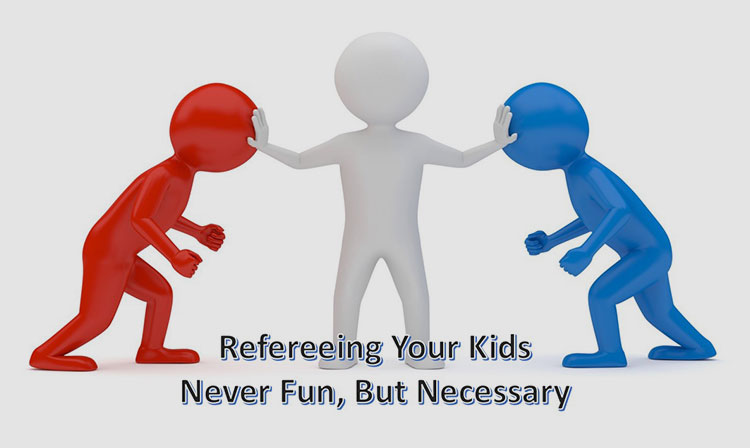
Did this title catch your attention? Did it even possibly shock your senses to see this as a part of a Christian blog? Why on earth would a Christian school’s blog be calling for more mean moms? Well, let’s provide some context to this discussion. Much research has recently emerged about how nice moms are to their kids. They work overtime to ensure their children are happy. They work to minimize experiences that bring their children hurt or disappointment. They, in essence, put diligent effort into making sure their children feel good most, if not all, of the time.
But…if you take time to look at the real world, this is not only unrealistic. It is also a means by which moms are crippling their children’s effectiveness in dealing with what will eventually come their way. Now, when you hear the term “mean mom”, some might think that this refers to an abusive or cruel mom. Well…the child might think so, given the punishment that he or she is receiving. But, truth be told, the meanness that this child perceives is simply their soft feelings getting hurt enough to instill a lesson in how they should behave.
In a recent blog article, a “mean mom” wrote the following:
“Mean is what your children may feel about you when you make them write a thank-you card, enforce daily chores or thwart their Friday night plans. Mean is when you push to know their friends and the parents of those friends, when you instill dinnertimes, bedtimes and curfews.”
Let’s be clear: all parents want to have fun with their children, to experience minimal conflict with them, to have that love-dovey feeling. But doing this at the cost of not teaching them the big picture of life will only bring future heartache in ways that will likely be more costly …in multiple ways.
So what are some ways that you can be that effectively “mean mom”? Here are four short ideas:
- Make ’em work
- Let ’em fail
- Rule their technology
- Stick to your word
We invite you to read a more in-depth article written by a mom who is most insightful in addressing this topic. Her article can be found at:
We believe you will find some light bulbs going off in your mind, not to mention that some, if not most of you, will recall your own mom being “mean”. However, it very likely has served you well. So, up your “mean” factor a bit. Do it in a healthy, biblical way.

Yes…it is a new year….and a new decade. Twice the reason to resolve for change in your life. For parents of school age children, making changes has application at multiple levels. Seeking to make changes as a parent has direct impacts on you personally and on your children. And, with everything else that is hitting you as you restart school, getting your second wind for the 2nd semester, and preparing yourself for what you can’t see that you know is coming, it is important to capture the opportunity for making impactful changes that the new year mood brings.
At the same time, you don’t want or need to overwhelm yourself or your kids chasing after new “shiny objects” of change that will only dim quickly. That only serves to add more stress. And who needs that? So what can you do to bring about some changes that can further impact your family in a healthy and challenging way? Let’s look at some simple things that you can do to enhance your family life and child relationships as you enter this new year.
- Put notes of encouragement in your children’s lunch bags. One dad did this and his son saved them and gave them back to his Dad as a surprise when he graduated college.
- Have a “family memory night.” Everyone gets to share his or her funniest memories and best family moments. Laughing is good for the soul. It is also biblical.
- On the way to school, ask your kids, “What is one thing you’re looking forward to today?” After school, ask them, “What was the best thing that happened to you today?”. Stay away from that awful, redundant question. “How was school today?”
- When your child shares something with you, stop what you’re doing and look him in the eyes. Ask a follow-up question. Listening with the eyes is as, or even more, important than listening with your ears.
- Stop communicating in only 140 characters or less.
- Stay OFF the phone when you pick your child up
- Pick a night of the week to be “No-Screen Night.” Turn off all computers and televisions to do something fun as a family. There are plenty of old fashion board games to be had and enjoyed.
- Start a prayer jar. Each family member can write prayers or draw prayer pictures and leave them in the jar. At year’s end, look through the prayers together and talk about God’s faithfulness. He is faithful. This will prove it.
Remember this: The days are long and the years are short. Before you know it, that distant time that you thought would take a forever to arrive, i.e. your children’s departure to make a life of their own, will come and go. Show them now that you are ready and committed to bring something truly new and meaningful into your family life. This will assist them in how they see their own lives…and God’s purpose for them.
NOTE: Source for this article comes from http://media.focusonthefamily.com/fotf/pdf/magazine/guilt-free-resolutions.pdf

The dictionary definition of disruption: a disturbance or problem which interrupts an event, activity, or process. Suffice to say that the virus known as “Coronavirus” or “COVID-19”, its medical nomenclature, has created a disruption, to say the very least. It has thrown sand in the gears and a monkey wrench into the machinery of our lives. To quote a grandchild’s recent comment to his grandfather, “Grandpa, things have really changed”.
The Down Side
Let’s stop here and take a moment to reflect. One thing we need to remember is that we live in a fallen, broken world. What we are experiencing now is no less different than what societies in ages past have faced, whether it be from the devastation of war, disease, economic collapse, or the combination thereof.
For most adults today, the last time such an impact was made on their lives, collectively as a nation, harkens back to September 11, 2001. But, as horrible as that day was, this experience arguably surpasses 9-11 because of the pervasive and personal nature of the effect that this health issue has brought to all of us. So, as we reflect, where should we go to gain the perspective that we need to navigate these times?
The Divine Side
If you have tuned into some of the news items and features addressing this health issue, some have referred to it on a biblical level. Society tends to go in that direction when seeking explanations that surpass what man can provide. Just last week, Dr. Tony Evans preached a sermon on the meaning of a “divine disruption”. He placed this issue squarely where it belongs. It is a disruption allowed by our Creator to get our attention on multiple levels. This disruption has forced us to stop, think, and re-align our priorities. We have been forced to look at relationships in a new light. We have been made to slow down and think in a manner that is not a regular part of our pace and rhythm. We have been compelled to re-think what is truly important to us.
We must realize that ultimately we are created in God’s image. As such, all that truly matters is what we do with our lives in service to Him. He is a loving, merciful, and holy God. He has known each one of us from the womb. He has plans for all of us, no matter our age or physical condition. Take in this scripture:
“For I know the plans I have for you, declares the Lord, plans for welfare and not for evil, to give you a future and a hope. Jeremiah 29:11”
Let us encourage you to develop a thankful heart and to appreciate God’s invisible hand of providence that is currently in motion. To whom else are we to turn? Purpose to care for those for whom you are responsible. Seek God’s wisdom as you navigate this extraordinary period in our collective lives. We at CRCS do believe that this is a time to develop a deeper strength, purpose, and faith as we trust Our Lord through this time. Let’s not forget this when we are on the other side of this health issue. It is a life lesson for the ages.

We enter this Easter experiencing an environment that is anathema to what we as humans, at least most of us, desire. That of gathering together, being close, and comforting each other. Instead, due to the current COVID-19 health issue that we continue to grapple with, we are compelled to keep our distance from people. This experience is cutting across all demographics. Everyone is feeling this. It is not only disruptive, but it also forces us to examine what really has meaning for us. It is bringing new meaning to the phrase “meaningful relationships”. During the time of Jesus, He reached out to many who were considered outcasts, to those who had no such relationships. Tax collectors, prostitutes, lepers. These were people who either because of their role, behavior, or physical condition, were avoided. It is horrible to feel avoided. To be ignored.
Fearful Avoidance
The other day we came across the story of a local resident who needed to go to the local Home Depot to pick up some needed items for a repair in his home. When he got home, described to his wife what it was like. First off, he couldn’t believe how excited he was just to be going to Home Depot. He considered it an escape from quarantine. But, when he got there, due to the social distancing health recommendation currently in place, he could sense not only the distancing, but a fearful avoidance that people were exercising. He remembered not long ago, prior to this current environment, having had short friendly conversations with some of the employees during previous visits as he was seeking a solution for a home repair. Or just briefly chatting with other homeowners.
Now, on this trip, he waited in line to go in on a metered basis, found his items, and checked himself out. No exchanges with anyone except with the one employee who pointed out the next available self-checkout register. On his way out of the store, he stopped to say hello to a contractor who was loading a truck. This gentleman stopped and gave a hearty hello back and said, “Hey, it’s good to have someone stop and say something.” He described that exchange being similar to someone giving him a drink of fresh water on a hot day.
Meaningful Hope
There is Someone ready to give each of us a drink of fresh water and to have a meaningful relationship with us. His name is Jesus. He turns outcasts into precious gems. He died and conquered death on Easter so that our lives would have eternal meaning, if we so choose. Yes, this is a unique Easter given that, for the first time in our nation’s history, churches will be empty. But the message of Easter has been and will always be found in the empty tomb.
Most of us have heard the Easter message in some form. We can, unfortunately, almost become numb to it. One way messages can connect with us is through visuals. We would like to share a visual with such meaning. It is a video clip from the movie Ben Hur. In it, the main character has been betrayed by a very close friend (does this sound familiar), and is about to give up living when Someone shows up and gives him the hope that only He can provide.

Memory…it is an elusive thing. One moment you find yourself struggling to recall something. You try and try and, for whatever reason, you just cannot recapture what you are trying to remember. The next moment, with what seems to be without any effort whatsoever, what you were struggling to recall arrives. Such is the human condition.
Not only is memory elusive. It is also powerful in its impact and can be a two-edged sword. It can take you back to a time or moment that you cherished or back to one that you would like to bury forever. It is the great equalizer. Nicholas Sparks, author of “A Walk to Remember”, a novel which later served as the source for a successful feature film of the same name, says this about such moments:
“There are moments when I wish I could roll back the clock and take all the sadness away, but I have the feeling that if I did, the joy would be gone as well.”
The Daily Battle – Pondering Why
Right now, with the health concerns surrounding Covid-19 and all of the changes we have had to adjust to, we all find ourselves navigating through a very unique and, safe to say, quite troubling set of circumstances to say the least. We see and hear daily about the stresses and pressures being placed upon our first responders and healthcare personnel. We hear about the suffering and the loss of life.
It raises the question that many, if not most, have pondered, “Why is this happening?” We won’t attempt to answer that question here. Suffice to say, we do know that no matter how dark and difficult things may appear, God’s hand of providence continues to move in ways that are both seen and unseen.
How We Respond
What we will address here is the topic of memory. Ponder this future scenario: The pandemic is long past. A sense of normal life has returned. You’re sitting down at Thanksgiving dinner with friends and loved ones and the conversation turns to the “Coronavirus Battle”. What memories will you have created for those sitting around you at that dinner? For your family members? For your children? When you try to recall how you responded to this experience, what will you recall about yourself? Will it be a memory that you cherish…or one that you will want to bury?
We can only control how we respond to the challenges before us. How we respond and those who bear witness to that response will serve as the basis for how we will answer that question. Let’s purpose, in light of what is uncertainty and stress today, to be a voice of encouragement for those in our personal circle. In scripture, even Paul, a powerful witness for the Gospel and author of several epistles in the New Testament, needed a voice of encouragement. One of those voices came in the person of Barnabas who came beside Paul during his most difficult experiences. Let that be your call.
When the Covid-19 pandemic is in the history books, what will those close to you remember about you? About how you responded to the stresses and pressures of this experience? Use these questions as part of your guidepost as you open your eyes each day.

To use a phrase that describes the overwhelming significance of an event or challenge, “Covid-19 has taken all of the oxygen out of the room”. If you look around at the daily flow of news and information, to say that Covid-19 and related stories dominate the news would be a gross understatement. So what can you do to move this out of the way and focus on something that provides a broader appreciation for life and how one can respond to stressful and, at times, unforeseen circumstances? Taking a look at the extraordinary response of someone who experienced bitter suffering of a different kind may serve to provide such an appreciation. We find such a response several decades earlier in the form of a crumpled note.
Incomprehensible Words
As the Allies moved across Europe during WWII to liberate countries from Nazi occupation, a unit came upon a place known as Ravensbruck. This was a concentration camp constructed by the Nazis exclusively for women. Here, nearly 50,000 women were exterminated. As the arriving soldiers slowly made their way through the camp and covered their noses as they encountered the stench of dead bodies, disease, and excrement, they found a crumpled note lying next to one of the dead women. It said the following:
“O Lord, remember not only the men and women of goodwill, but also those of ill will. But do not remember the suffering they have inflicted upon us. Remember the fruits we brought thanks to this suffering—our comradeship, our loyalty, our humility, the courage, the generosity, the greatness of heart which has grown out of this. And when they come to judgment, let all the fruits that we have borne be their forgiveness.”
In Every THING
One can only try to imagine the terror and horrors faced by the woman who penned these words. It is beyond one’s own human capacity to comprehend how someone experiencing such appalling conditions could be capable of authoring such words of courage and forgiveness. And yet she managed to express them, the source of which could only have been a glorious and gracious God who is capable of understanding such suffering.
Think on this the next time you find yourself possibly slipping into a pity party or allowing the stress of this pandemic experience to take you to a bad place in your mind and heart. Your suffering may be difficult at multiple levels. But it likely does not come anywhere close to what this woman was experiencing as she opened her eyes daily to an environment many of us would like to forget. God knows and holds the future. Whatever one’s individual future is beyond Covid-19, God is already there waiting for you. He will give you what you need. As Holy Scripture says…and reminds us:
In every thing give thanks, 1 Thessalonians 5:18a
Thank Him today for the blessings yet to come. This will work to keep your heart and mind where they need to be.

The school year is beginning. As a parent, you are navigating waters that you never expected to face. You are having to deal with and address issues that, a year ago, were unheard of and unforeseen. You are having to plan your time for work, home, and school in a manner that you just didn’t see coming. Depending on where you live, your kids are in an in-class mode, a hybrid program, or are totally virtual in their learning. No matter which of these apply, you are finding that you have to be agile, flexible, and adaptable. Yes…all apply.
How do you do it? How do you embrace this new mode of life and stay balanced? A soldier not long ago returned from the Iraq war to his family. He had lost both of his legs to an IED (improvised explosive device). To say he struggled to get his life back to some kind of regular pace and rhythm would be an understatement. In an interview, he was asked how he deals with the challenges in his life. He said, “I pray to calm myself down and I ask God to give me a mindset of resilience”. Resilience? What is that? Simply put, resilience is the capacity to respond positively to adversity. The key word here, of course is “positively”. That cannot and will not happen without active intentionality.
As a parent, is this not how you would like to see your children respond to adversity? To failing a test? To a failed friendship? To a major disappointment? Is this not how they can become stronger and develop a deeper endurance that they will need in life? Of course. So this pandemic environment is now providing you the opportunity to model what you desire to see take root within your children.
Here are a few tips that will get you on the road in this endeavor:
Build connections: Quality relationships—with both adults and peers—are key to resilience. Strengthen your child’s relationship with you by showing appropriate warmth and affection. Physical touch is especially important.
Focus on managing emotions: Resilience is about responding to emotions in a healthy way. Children respond to challenging events differently, so they may need different types of support. You can help by encouraging your child to talk about their feelings and acknowledging what they tell you.
Create opportunities for personal challenge: Resilience comes through facing obstacles and managing success and failure. Taking “healthy risks” that are age- and developmentally appropriate builds confidence.
Keep a routine: A regular routine can be comforting to children, especially younger ones who need more structure. Encourage your child to develop their own routines, like getting outdoors before starting homework, for example.
One day you will look back on the era of Covid-19 and will reflect on what happened. What memories do you want to prevail in the minds of your children? What good habits do you want them to have developed that you can model for them now? We can only control ourselves and influence others. God, our Creator, says: “A man without self-control is like a city broken into and left without walls.” What happens to a city broken into? It is looted and stripped bare. You don’t want that to happen to you. You certainly do not want your children see you stripped emotionally bare and broken. So start now. Ask Our Lord for the grace and strength to get up each day and model a resilient approach to the day’s challenges. This will bring calm and peace to your children’s hearts. You will look back with great joy, we promise.
NOTE: Source for this article can be found at https://blog.acsi.org/13-ways-to-build-resilience-in-your-children
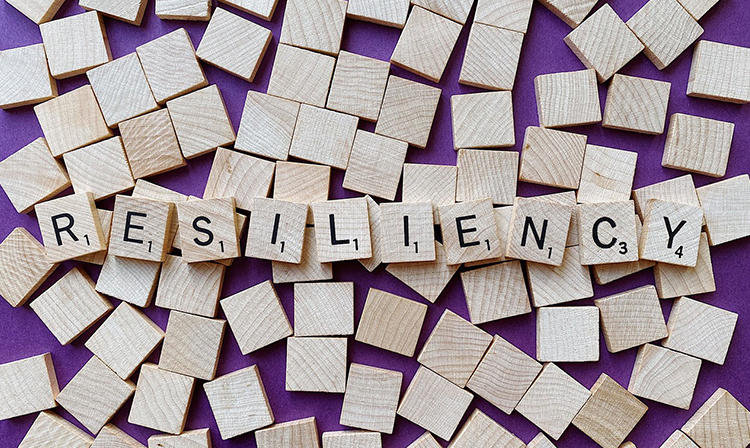
Not long ago, a staff pastor of a church was reflecting on an experience he had as a young boy as he watched his father serve in full time ministry. One of the roles his father served in was as a chaplain who would speak to professional sports teams. This staff pastor, as a young boy, was an avid football fan and idolized a particular player…to the point that he wanted to do the things that this player did, which included eating the cereal that he ate. That’s right. One day, while he was in the supermarket with his mom, this particular football player’s picture was on a box of Wheaties. For most of you, you know what they call Wheaties: the “breakfast of champions”. When this young boy saw his idol on that box, he started to consume that cereal with a vengeance.
Let’s fast forward about two years. His dad, as part of his chaplain duties, was given the privilege of speaking to the team for which this young boy’s idol played. His dad took him on the trip. They were invited to join the team for breakfast. This young boy was crazy out of his mind. He could not believe that he was going to be given the chance to meet his idol.
Spotted the Cereal
As they arrived for breakfast, served in a private room buffet style, he saw his idol eating cereal. He nervously walked toward him and noticed that, instead of eating Wheaties, he was eating Raisin Bran. He was puzzled to say the least. He got up the nerve to approach him, say hello and asked him why he wasn’t eating Wheaties. The response he received floored him: “Hey, that cereal is nasty. I don’t eat that stuff.”
To say the air come out of this young boy’s balloon is an understatement. He couldn’t understand it. His dad used this moment over that breakfast to tell him: “Son, be careful whom you put on a pedestal. Because often, they will fall off.” This young man learned something. All this football player wanted to do was to allow his image to be used for personal gain, even if it meant being deceptive.
Scripture has something to say about integrity and honesty:
“Whoever walks in integrity walks securely, but he who makes his ways crooked will be found out.– Proverbs 10:9
Now you might be thinking “is this really that big if a deal?” Integrity is precious and fragile. As a parent, we are regularly under this microscope. As scripture says, we are walking this daily…with our kids…and all who see us.
To Be Found Out
Our motivation must be to NOT be found crooked. But to act in such a manner that, whenever someone looks at us closely, what will be found are ways that are straight, honest, and without blame.
That does not mean that we will be without error. Error is indeed part of the human condition and this broken world within which we live. It does mean that we must consider our words and our actions. This sports figure determined that his words and actions did not need to line up…and it didn’t matter. Well, maybe it didn’t matter to him. But, in the long run, it truly does matter. It certainly mattered to this young impressionable boy for whom this well-known sports figure has long lost his luster, his trustworthiness. This is what happens over time if your ways are crooked. You will eventually lose what you thought you had…respect and trustworthiness. It’s not worth it. So turn in the right direction now…and keep straight. Your work colleagues, friends, children, and your spouse will not only take note…they will also be blessed.
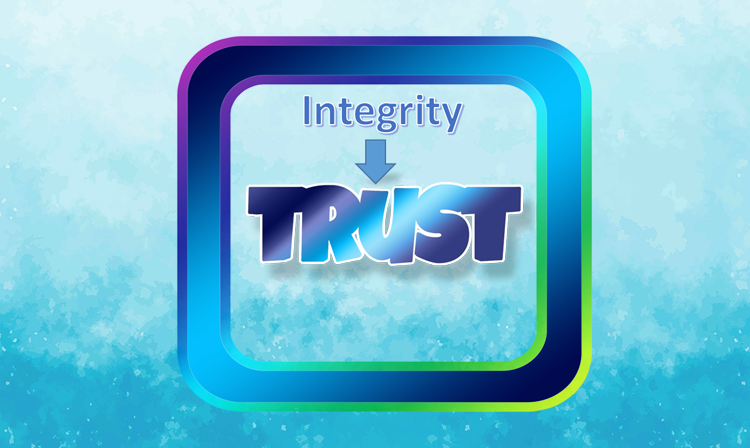
God created each one of us uniquely…with talents and abilities that we can use to serve Him in His creation. With this uniqueness comes individual thoughts and, guess what…opinions. Opinions that others may disagree with and some with which we may hold disagreement. That is a fundamental part of the human condition. But what happens when such disagreements turn a corner and result in tense conflict or, worse yet, property destruction or personal harm to others? This is NOT good. So how do we address this?
In the bible, you will find instances when Jesus and, one of his most ardent followers, the apostle Paul, spoke strongly in addressing what they deemed to be contentious issues. Jesus did not mince words with the money-changers in the temple. Nor did Paul hold back when he encountered people he referred to as agitators when he said “I wish that those who are troubling you would even mutilate themselves.” (Gal 5:12)
Biblically-based skillset
But you will also find instances wherein they displayed a level of relational skills that were (and are) awe-inspiring. The awe is rooted, for Paul, in the indwelling of the Holy Spirit. And, of course, for Jesus, it is in His own divine nature. For us mere mortals, to coin a phrase from today’s lexicon, it may seem a bridge too far to reach such a level of skill. But wait! God did provide us a blueprint for us to follow. Take a look at the list of biblical tips below pertaining to civility and conflict resolution:
- Let your conversation be always full of grace, seasoned with salt, (Col 4:6)
- With the tongue we praise our Lord and Father, and with it we curse men, who have been made in God’s likeness. Out of the same mouth come praise and cursing. My brothers, this should not be (James 3:9-10)
- Do not let any unwholesome talk come out of your mouths, but only what is helpful for building others up according to their needs, that it may benefit those who listen. (Eph 4:29)
- Everyone should be quick to listen, slow to speak and slow to become angry (James 1:19)
- Let us therefore make every effort to do what leads to peace and to mutual edification(Rom 14:19)
- Words from a wise man’s mouth are gracious, but a fool is consumed by his own lips. (Eccl 10:12)
- Therefore encourage one another and build each other up (1 Thess 5:11)
- But now you must rid yourselves of all such things as these: anger, rage, malice, slander, and filthy language from your lips (Col 3:8)
- The quiet words of the wise are more to be heeded than the shouts of a ruler of fools. (Eccles 9:17)
Parents: please take a moment and examine yourself. What do your children see when you are in the midst of a conflict? When you encounter a policy or opinion with which you strongly disagree? How do you respond? What have you said that you wish you hadn’t? (We are all guilty of this.) Kids capture more what is caught than taught. What are they catching when they witness how you respond or speak about such situations?
Begetting Relational Fruit
In my role as a Christian School Administrator, I can speak for all of our staff when I say that we are very conscious of how we speak and respond to the students in our care. That does not mean we get it right every single time. But I can say that we have that consciousness in the forefront of our minds when engaging them.
Nonetheless, the ultimate influencers are you…parents, grandparents, guardians. The ones they see when no one else is around. Keep that in mind the next time you are tempted speak about someone in a less than respectful (even possibly in an ugly) manner. Those young minds are tantamount to moldable clay. You want them to take a form that is a reflection of the set of scriptural tips outlined above. Such minds will beget fruit that will serve them well in their relationships, not to mention how they will influence others and bring a welcome generational change to our societal discourse.
NOTE: This article served as a primary source for this blogpost: https://www.patheos.com/blogs/davidrupert/what-the-bible-says-about-civility/

If you are engaging in television entertainment much these days (safe to say this is something that most of us are doing, given the prevailing pandemic conditions and the resulting shut-in experiences we are having), you are very likely stumbling across Christmas and other holiday-themed movies right now. This can serve as a bit of an escape given that our Christmases this year are being greatly altered in what we can do and where we can go.
There is one movie which many may have seen starring the late Jimmy Stewart titled “It’s A Wonderful Life”. It has gained quite a following over the decades and is considered one of the all-time great film classics. When it was originally released in the mid 1940’s, it did not do very well. Some messages take time to be absorbed.
Lonely and Broken
In this particular film, the fictional character George Bailey, played by Jimmy Stewart, goes through what becomes a devastating experience through which he begins to question whether or not his life truly has had any meaning. In a very pivotal scene, a broken down George whispers these words, “Dear Father in heaven, I’m not a praying man, but if you’re up there, and you can hear me, show me the way. I’m at the end of my rope.” In the now iconic scene, Bailey’s eyes fill with tears. It was later discovered that those tears were coming from some deeply felt emotions that began to overwhelm Jimmy Stewart as he was acting in that scene. He was later heard to say that he “felt the loneliness, the hopelessness of people who had nowhere to turn.” It broke Stewart.
This is that time of year when everyone is supposed to be experiencing Christmas cheer and feeling festive. But behind many closed doors and in quiet corners of bedrooms and dens, many are uttering such similar words, particularly given what we have been facing in 2020: disease, job loss, broken relationships, financial stress, societal stress, the list goes on. In essence, many are saying, “Help me.”
Deliver Me
During this Christmas season, which will likely be remembered for years and decades to come, that cry for help can be heard and answered by the very person whose birthday we celebrate on December 25. His name is Jesus. King David, in Psalm 109 makes a similar cry for help. He says “But you, Sovereign Lord, help me for your name’s sake; out of the goodness of your love, deliver me.”
Take a moment and ask the Creator of the universe to come in and save your life. All he wants to know is if you really want His help. Are you broken like Jimmy Stewart was? That’s all it takes for the door to be opened and to receive the help He is prepared to give.

We are a few weeks into the New Year. Depending on how you look at it, so has a new decade. As many do this time of year, we usually take stock in a number of things. How am I doing in meeting my various responsibilities? How am I doing on my relationships? If you are a parent, you certainly are looking at how your kids are doing. How are they faring in school? In their friendships? Add on to that the turbulence of 2020 and you have quite a bit to think about. How do you prepare yourself for what awaits you and your family? Let us offer some thoughts.
What You Can Do
First, recognize that the only thing anyone can do is to control themselves, how they think, what actions they take, and how they respond to what comes their way. There is great peace in this. It settles one’s mind. It puts us in a place where we can and should only use the finite energy that we have on what matters.
Second, take time to determine what truly matters in your life. As a parent, one posit we will make here is that your children need that aforementioned energy. (We were going to say that your children truly matter. BUT…we know you already realize that.) They need to see you put a priority on investing time and attention into their worlds. Have you not already had to do that, given the work and home environments that this pandemic has foisted on most?
Third, recognize that you can look at the uncertainty of 2021 from a mindset of apprehension or anticipation. Apprehension is the presence of anxiety or fear with the expectation that something bad will happen. Anticipation is looking forward with a pleasurable expectation. For purposes of this discussion, let’s assume that you want the latter. How do you fight off the apprehension, which will undoubtedly try to worm its way into your mind from time to time?
The Two A-words
Let’s turn to scripture. Our Creator knows what apprehension is. He is there before we are. In scripture, he says, “Do not fear . . . . When you pass through the waters, I will be with you”. (Isaiah 43:1–2) As a parent, is that not something that you would say to comfort your child when he or she becomes fearful? Of course it is. Well, let us encourage you to seize on these words as spoken by God in scripture. This is how you fight off apprehension. And, do not forget…this will be a regular battle with ebbs and flows to it. So take what you learned from 2020, apply it to 2021, and let anticipation reign as you view the uncertainty of 2021. Know that, with a personal relationship with the Son of your Creator, He will take you and your children through whatever comes.

Recently a series of observations were made by teachers who conduct virtual learning across various school districts. They began to discover some patterns and behaviors that were disturbing. Now before we get into the specifics, it is a given that parents want their children to succeed. They will necessarily get involved in this process of working with their children in healthy ways. However, there are some clear boundaries that parents should abide by and not step over. When violating these boundaries, parents are sending a very wrong message about integrity, or the lack of. And…they will cripple their children.
Disturbing Observations
Now to the specifics. It was noted by some teachers conducting virtual classes (this is across the private and public school spectrum) that parents were inserting themselves during lesson time. By inserting, what we mean is that when a child was asked a question by his teacher, parents, sitting off camera, would provide the answer for their child.
Teachers also began to take note of some of the work that was being turned in by some of the virtual students. It was very clear that the work was not the product of the child. This could be determined by the superior quality of some submissions which far exceeded what a teacher would expect of a good student at that grade level. Teachers also began to notice scores on some exercises that went far beyond where a child had been in a particular subject area, such as reading, just a short time before.
Violating Boundaries
Let’s stop right there. What is happening here? While children need to be learning how to take responsibility for their work, paying attention, and learning from mistakes, all of this is being robbed from that child by the very person that would want them to embrace these important traits. Parents who violate these boundaries are sacrificing their children’s ability to learn these traits just so that their children do not look bad. They want their children to get it right in the moment, to feel good about themselves. THIS is bad. Life is just not this way. Children need to experience failure. They need to have that feeling of disappointment for not getting the right answer. It is out of this experience that children, properly coached, grow to be better. To work harder. To pay closer attention. Feeling good about themselves should arise out of their overcoming a learning obstacle on their own merits.
Learning Pains
Parents, ask yourselves. If this is you, yow long are you willing to do this? To be by your child’s side in their life and take away the difficulty? Are you going to move to the town where they are attending college to help them? Will you take a job near them to be there to help when they encounter difficulty in their career? I know. These are absurd questions. But they raise a more important question: Are you willing to let your child learn from failure? Learning is clothed in failure. Let them experience it. Scripture says this when it comes to experiencing failure:
It was good for me to be afflicted so that I could learn Your statutes. Psalm 119:71
Our Creator understands failure. Failure is a good thing. It brings our minds and hearts to a place where learning takes place. Let this be the road that your children travel. For their sake.
NOTE: Photo courtesy of Ralston Smith

As we approach Resurrection Sunday, we would like to put before you a school story that brings a different, and a deeper, meaning to the word ‘empty’. You may likely have seen this story (or a similar version) before. Nonetheless, it clearly underscores how God can use what society might term ‘the least’ to convey the most.
Jeremy Forrester was born physically handicap and mentally challenged. At 12 years old, he was in the second grade and his teacher, Doris Miller, often became frustrated with him because he would squirm in his seat and make grunting noises which distracted the other students. Yet, other times, he spoke and behaved very well.
One day, at a parent teacher conference, Miss Miller told the Forrester’s, “Jeremy really belongs in a special needs program. I believe he would feel more comfortable if he were surrounded with others with similar disabilities.”
Mrs. Forrester was very disheartened and began to softly cry, while her husband spoke.
“Miss Miller,” he said, “there is no school with special needs programs nearby. It would really disappoint Jeremy if he had to leave this school because he has told us how much he likes coming here.”
The teacher sat stoic, staring at the snow outside the window. Its coldness seemed to penetrate her heart and soul. She wanted to sympathize with the Forresters, after all, their only child has a terminal illness. But it was very hard for her to teach the other students with Jeremy’s daily distractions. She felt he would never learn to read or write and that it was a waste of time to keep trying.
“Well, I’ll give it a few more months and see if he improves. Meanwhile, I highly suggest that you look into other resources to help him become successful.” said Miss Miller.
When the Forresters left, she sat at her desk and thought about the situation as guilt overwhelmed her. “Here I am complaining because I can’t seem to reach him and yet, his parents struggle with this more often. My situation is nothing compared to his parents. Lord, please help me to be more patient with Jeremy.”
A few months later as spring was arriving and while she was trying to teach, Jeremy unexpectedly stood up and limped over to her. He wrapped his skinny arms around her legs, looked up at her face and said loud enough for the whole class to hear, “I love you, Miss Miller.”
The other children began to giggle and mock him. Her face turned a beet red as she replied, “That’s very nice, Jeremy. Now please go take your seat.”
Jeremy went back to his seat and the excited children began telling Miss Miller about their anticipation of Easter coming. Then Miss Miller began telling the story of Jesus and emphasized the idea of new life springing forth. She gave each of them a large plastic egg, “Now I want you to take this home and bring it back tomorrow with something inside that represents new life,” she told her class.
The next day at school, all the children placed their eggs in the large wicker basket on Miss Miler’s desk. She picked up the first egg, opened it and found a flower. “Oh yes, a flower certainly is a sign of new life,” she said. “When plants peek through the ground, we know that spring is here.”
A small girl in the first row waved her arm, “That’s my egg, Miss Miller.”
The next egg contained a plastic butterfly. “We all know that a caterpillar changes and grows into a beautiful butterfly. Yes, that is new life too.” Miss Miller said.
A small boy raised his hand, “That’s my egg, Miss Miller. My dad helped me.”
Then she opened another egg. She gasped when she saw the egg was empty. Realizing that it was Jeremy’s egg, assuming he didn’t understand the assignment, she didn’t want to embarrass him so she set the egg aside and reached for a different egg.
Suddenly, Jeremy spoke up, “Miss Miller, aren’t you going to talk about my egg?’
Flustered she replied, “But Jeremy, your egg is empty.”
“Yes, but Jesus’ tomb was empty too.” He said.
The recess bell then rang and the children leapt up out of their seats and ran outside. Miss Miler sat in her seat and all the coldness she felt towards Jeremy suddenly melted away.
Three months later, Jeremy passed away. Those who went to pay their respect at the mortuary were surprised to see 19 eggs on top of his casket… all of them empty.
May we not forget that the true meaning of Easter is reflected in the emptiness of the tomb that Our Lord left behind.
NOTE: This comes to you via Amazing Grace-My Chains Are Gone.org

With the advent and explosion of the digital and social media world, it is obvious to anyone that people, especially young people, have jumped heartily into the identity game. Between posting selfies, videos, pictures, and tweets, they are doing anything to get some attention. To be identified as someone who is somebody. It shouldn’t surprise us. We all crave to be recognized. There is nothing innately wrong with that. Where it becomes a problem is when someone sees that recognition as the “be all and end all”. That is not healthy.
A recent article from the ministry “Focus on the Family” tackles this subject and provides some very insightful observations about what identity looks like in this culture:
Discovering who you are is code for, “What do you like?” In other words, finding “your thing” becomes the key to discovering the real you. This mindset leads to a superficial identity, in which your child’s current (and often temporary!) preferences become a key part of their personal identity creation. Because of this, many teens, preteens, and young adults make significant judgments about others based on the way they look, dress, or with who they decide to hang out. In many ways, these surface‐level identifiers take the place of identity itself.
The problem with this superficial identity formation is how it creates a moving target. Kids’ preferences change frequently, and when their identity becomes based on these surface‐level distinctions, their identity can feel transient and flimsy. For a parent, watching their child change from soccer to basketball can be exciting — maybe they’re finally finding their thing! However, for the child undergoing this change, it can feel like they’re in danger of losing their sense of identity. As parents, we can help our children understand that personal identity is not established by what they like at the moment. We teach our kids that what they like is important but is not equal to their identity.
What is key in the pursuit of identity is authenticity. We cannot find that if we measure identity in what we are doing. What we do certainly matters to God. But if what we do is the measuring stick, then we will find ourselves constantly measuring what we are doing against what someone else is doing. Making such comparisons will cause us, more often than not, to feel that we are falling short.
However, there is one thing that each of us has: a story. Our story is unique to each of us. And we all want someone to hear it. How do we get someone to hear our story? We do so by listening to the story of someone else. (Yes…this sounds counterintuitive, but stay with us). It is critical, when connecting with someone, that we look into and find out “their story”. This moves our eyes off of us. We are humbling ourselves. Sound familiar? This brings authenticity into focus. Here is a bit more on this from Focus:
When you meet someone new, you ask them to tell you their story if you want to get to know them. We understand that hearing someone’s story will help us know who that person is on a deeper level. A story reveals the “me” that is much deeper (and more complex) than what they are interested in right now. Teaching our children to articulate their stories will help them understand that who they are is far more significant than what they like.
The Church has always understood that God created people to learn through stories. When Jesus wanted to teach people a quick lesson, he told them a story. His audience was supposed to see themselves in the story and come to understand something more profound about themselves and the world in which they lived. God wanted his people to understand who they were, and so he gave them stories to tell their children and grandchildren. The Bible, at its core, is the story of God’s interaction with His people. The earliest believers often gathered to tell the story of God. And when they did, those stories became a part of their story.
Jesus said things that go against our finite, natural, logic: To be great, you must be the least. To be first, you must be last. This goes against our nature indeed. But truly, this is what we must ingrain in our children if they are to see the world through the lens of authenticity. As parents, we need to teach them that they have a unique story. That’s because God created them uniquely. WE the must teach them to put their story second and seek someone whose story they can listen to. Put this on their goal list for this summer. They won’t have to go far to find someone.
Article is sourced from: https://www.focusonthefamily.com/parenting/personal-identity-formation-in-the-age-of-authenticity/

Recently, a superintendent of a highly rated school system in the mid-Atlantic area of the country spoke to a local chamber of commerce. During those remarks, he shared a very candid statement about the impact of the pandemic on education. He said, “We are going to be recovering from this for the next several years.” Those words hung in the air for a few moments. It is fair to say that most, if not all, hearing them found that statement to be not only true but also one that has set the stage for what parents and educators will be facing.
So let’s take a step back and look at this. The pandemic experience has reshaped many aspects of life in the U.S. How we work, commute (or not commute), shop, interact, travel, even where we choose to live. Yes…it has been stressful. But it has also brought about new mindsets, new ways of seeing challenges as well as more innovative ways in meeting them.
Within the world of education, much of the same can be said. Terms such as in-class, hybrid, virtual, homeschool, school coops now populate the lexicon. This has compelled parents to look more closely at and explore options that they feel best fit their family. Such scrutiny is what is needed to meet the aforementioned recovery challenge identified by the superintendent. It can indeed be scary as well as rewarding.
So…what can you do as a parent to engage this recovery for your student? First, it is key to remember that growth does not come without struggle. Do not allow your child to get caught up on how hard a task or project may be. Hard is good. You know this to be true. It stretches the mind and the body.
Second, keep your children socially engaged. This will mean getting them out of the house, off the screens, and spending time with peers in ways that are safe while enabling them to experience relational connections. God created each of us as a relational creature. We need to connect with others. Our kids need to connect with others.
Third, be sure that your child can get their emotions out. They are experiencing something that will have a long-term effect on them…and you. God put emotions in us as a barometer on how we are feeling. He also gave us a mind and free will so we can harness them when we need to.
Lastly get on your knees with your child and let him/her hear you thank God for them. For all that He has provided. Yes…thankfulness is a cornerstone in the foundation of a meaningful life.

One of the most difficult things for any parent to accept is the act of their child lying. As a parent you want to believe that your child is being truthful with you. What parent does not want that? You want to believe that your child will do the right thing when it comes telling you the truth, the whole truth, and nothing but the truth. You want to believe them. BUT…there is something that speaks to the human condition, and by condition, we mean sinful condition that gets in the way of this.
Let’s take a look at what scripture says. In the book of Jeremiah, we are told this:
“The heart is deceitful above all things, And desperately wicked; Who can know it?”
Our Creator is telling us three things here. First, that the heart is deceitful. Why is that? It all began when Adam pointed to Eve and blamed her for his action. Yep…he was in a perfect world and his heart revealed a deceitful side. We all have this within us…including our kids. It is not that they desire to be deceitful. It is simply part of their DNA as flawed human beings living in a broken world.
The second thing our Creator tells us is that the heart is not just wicked…but desperately wicked. When someone is desperate, they will do almost anything. When you combine desperation with wickedness, we should not be surprised when we see someone do something that protects them from punishment. Sound familiar? It happens all the time. Both with children and adults.
The third thing is conveyed by way of a question: “Who can know it”. What is He saying here? Let’s paraphrase this with a statement: There is no way you can know what a desperately, deceitful heart will do. Think about that for a moment. God is saying we should not be surprised when someone we want to trust will do something that breaks that trust. That is what Adam did. And, if you go back and read the account in Genesis, it is pretty clear that he is trying to protect himself from God’s wrath.
So let’s get back to the topic of your child lying. Is it possible, when you ask him or her a question about a behavior or performance issue at school, that a lie, in the form of either an outright deception or an omission of certain facts, might be spoken? The answer is yes. Remember that when you are having one of those stressful, and possibly confrontational, conversations with your child. We are not saying that they are incapable of telling the truth. But we are saying that lying is very much within their natural capacity. One more thing: as a child, did you ever lie to someone? To your parents? Now be honest.

Memories are powerful. Memories connected to the Christmas season can be even more so. They can bring great joy or pain depending on the circumstances. Often what may have seemed a painful experience at first, upon reflection, is later seen as a life lesson that brings a deeper and better understanding for the blessings that we can miss.
We would like to bring a simple story to you of a Christmas memory as shared by Mandisa, a contemporary Christian Music artist and former “American Idol” finalist. This underscores how the providence of God is at work in the life of believers in ways that build patience and demonstrate God’s love. She calls this her “Unexpected Gift”.
One year not too long ago, I was completely alone on Christmas Day. I lived in Nashville, Tenn., thousands of miles from my family in California, and I didn’t have the money to go home. It was tough.
I grew up in a single-parent home, and my mother and I were close. I so admire her. She worked and raised my brother and me all on her own. Money was scarce and times were hard, but she never wavered. My mother is truly the strongest woman I’ve ever met, and the way she lived her life caused me to become a strong woman as well.
Maybe that’s why, even though I was tempted to feel sorry for myself that lonely Christmas Day, I determined instead to spend that time with Jesus.
The day changed me. I spent hours thinking about the meaning of Christmas, worshiping Jesus and reading the Gospels. People felt sorry for me, but they didn’t need to — it was one of my sweetest Christmases.
That day ended, but God had more presents in store for me. Every year since then — in a way that can only be described as God’s hand — my touring has brought me to California during the Christmas season. I spend a lot of time on the road singing and ministering to others, and I have little control over my travel schedule. So I know it was a gift from God that I’ve been able to spend Christmas with my family three years in a row.
I focused solely on delighting in God that one Christmas, and He brought the desires of my heart to pass. Just like He promises.
It is important that we not forget where true joy comes from. In the busy-ness and noise of the season, we can become very distracted and miss this. Jesus left a perfect world to enter this broken one to bring us joy, to fulfil His promise, and to give us providential memories. Make the effort to get alone, read the Christmas story in the book of Luke, then imagine yourself as one of the shepherds who heard the announcement and saw the new born Savior. This will bring the perspective that we all need as we close our eyes on year 2021 and prepare for the year to come.
NOTE: Mandisa’s story is taken from the Focus on the Family website, https://www.focusonthefamily.com/parenting/meaningful-christmas-memories/

As a loving parent, you desire that your child’s life will count. You want him/her to take the skills and talents that God has given them and use them to impact this world for the better. Your vision is emotional and passionate. You may even, at times, have to step back because you may find yourself pushing and nudging them which can become problematic. Ultimately you want to raise what some might call a world-changer, a person of influence. Totally understandable. But how do you do that? After all, sometimes it stretches you just to get them organized, prepared, and out the door on time. So let’s take a look at some ways that can put your child on this influence track
Begin With the End in Mind
It takes a very intentional parental mindset to keep one’s eye on your child’s future. Remember this: You are raising up someone else’s possible husband or wife, mother or father. Think about the kind of man or woman you will release in a few years. What type of person would you like them to become? Think about it, cast a vision for your family, and then parent in that way.
Have you heard of the tennis player Serena Williams? Did you know that when she was a child, her father wrote out a detailed plan for her life? Now that may come across as possibly heavy-handed or even controlling. But he loved his family, was facing environmental obstacles that seemed insurmountable at the time. But he did not let that get in the way of the vision he had for her.
Become Great at Asking Questions
Albert Einstein once said, “If I had an hour to solve a problem and my life depended on the solution, I would spend the first 55 minutes determining the proper question to ask, for once I know the proper question, I could solve the problem in less than five minutes.” Your parenting style will change as your child matures. One of the greatest skills we can cultivate is the ability to ask a good question. This skill not only boosts your parenting ability but can also help you in all areas of your life.
Did you know that Jesus used this style of teaching more than any other? He is the Master of questions. A well-thought-out question has the potential to produce both self and God-awareness and aids active learning as we parent our children towards maturity.
Parent From a Place of Love, and Not Fear.
We cannot function out of love and fear concurrently. These two cannot co-exist in the same place in our brains. That is why the Scriptures speak to us so much about not giving in to fear. 2 Timothy 1:7 addresses this, “For God has not given us a spirit of fear, but of power and of love and of a sound mind.” We can parent out of a place of love, power, and have a sound mind. Love is expansive, responsive, discipline-orientated, and generous, whereas fear isolates us, is reactive, and often involves punishment.
Learn the Art of Discipline
Discipline and parenting go hand-in-hand. Unfortunately, many parents don’t truly understand what this means. To discipline your children is to guide, correct and train, not punish them for past wrongs. It involves consequences, consistency, and, most of all, a heart of restoration. Restoring means to bring them to a place where they can look ahead and see not only the wrong way but also seize the right way.
Pray for Them
We serve a God of infinite wisdom. All we need to do is to look upward and ask our Creator to bring His influence and wisdom on our children. This simple act can bring about the extraordinary, the supernatural, and the change that only can be attributed to the providence of God. And that is all that our children will need to be the influencers and world changers that we as parents desire.
NOTE: the source material for this article can be found at https://www.focusonthefamily.com/parenting/10-ways-to-raise-influential-kids/.

It is that time of year…again. Seems to come around faster and faster. And comes at all of us with more and more to prepare for. Order and chaos can both reign. We certainly want order. But chaos is the default if order is not planned for. So how should you plan for the launch of this upcoming school year?
It is important to realize as a parent that your child may not be excited about returning to school. This not unusual. It is a mix of change adjustment, trepidation as the concern of academic success rears itself, and reconnecting with friends while also adjusting to anticipated peer pressure. So let’s take a look at some steps that you can take to get your children ready.
First, acknowledge the change. In research conducted by Focus on the Family:
“Going back to school is really more than just a one day event. The back to school blues can start to creep in well before the first week of school arrives. This type of transition is about the forming of a new habit. Brain researchers agree that the forming of a new habit also includes the breaking of an old one.
Getting up early after three months of sleeping late requires both the dismantling of the old sleep pattern and the creation of the new pattern. A consistent bedtime and rise time will build more structure back into Nick’s schedule. Also, this new habit will help him to embrace routine as he anticipates the structured environment of a traditional school day.
Habits are patterns of behavior built on prior experiences. How a child responds to a difficult teacher, a difficult classmate or a difficult learning experience is often a habitual response. If your child has had a challenging or traumatic experience at school, it’s crucial that you acknowledge this issue and help your child separate the past from the present.”
Given the reality of facing change, below are some tips from this research that will assist you and your child in facing this task:
- Plan for Change
- Together with your child, identify in writing the habit of behavior or habit of mind that needs adjustment.
- Then, write down some specific steps your child can take. With your support, they can move toward a more positive habit of behavior or mind.
- Deal with One Habit at a Time
- Even if you and your child have a laundry list of concerns about the new school year, choose to work on only one at a time.
- Take Small Steps
- Too large of steps can be difficult to manage.
- Repeat the Desired Behavior
- When building a new habit, frequency is key
Scripture clearly addresses change. In Ecclesiastes 3:1, Scripture clearly states, “There is a time for everything, and a season for every activity under the heavens”. So…prepare to embrace this latest new season of the upcoming school year. With a biblical lens, you will be able to spot and appreciate the blessings.
NOTE: The source material for this article can be found at: https://www.focusonthefamily.com/parenting/back-to-school-blues/

For us at Calvary Road Christian School, we have purposed ourselves to raise academic scholars who will seek God’s will for their lives. This is simple…and challenging. Children are free agents, as we all are. They can make good and bad decisions, as we all do. It is very difficult, to say the least, when we see the consequences of those bad decisions unfolding in their lives.
So what can parents do? First and foremost, they can seek divine intervention through the power of prayer to our Creator God. We offer these pray points below that parents can embrace as they navigate their parenting experience:
- Pray that they will come to know Christ as Savior early in life (Psalm 63:1; II Timothy 3:15)
- Pray that they will have a hatred for sin (Psalm 91:10)
- Pray that they will be caught when guilty – YES…better to be caught and held to account than to escape accountability, only to continue down that dark road (Psalm 119:71)
- Pray that they will be protected from the evil one in each area of their lives: spiritual, emotional, and physical (John 17:15)
- Pray that they will have a responsible attitude in all of their interpersonal relationships (Daniel 6:3)
- Pray that they will respect those in authority over them (Romans 13:1)
- Pray that they will desire the right kinds of friends and be protected from the wrong “friends”. (Proverbs 1:10-11)
- Pray that they will be kept from the wrong mate and saved for the right one. (II Corinthians 6:14-17)
- Pray that they, as well as those they marry, will be kept pure until marriage. (I Corinthians 6:10-20)
- Pray that they will learn to totally submit to God and actively resist Satan in all circumstances. (James 4:7)
- Pray that they will be single-hearted, willing to be sold out to Jesus Christ. (Romans 12:1-2)
- Pray that they will be hedged in so they cannot find their way to wrong people or wrong places and that the wrong people cannot find their way to them. (Hosea 2:6)
REMEMBER: Prayer is the slender thread the moves the mighty arm of omnipotence.

One very important part of our mission at CRCS is to turn the eyes of our students outward. One way we approach this is to include service projects that call on students to give to a local community group that supports those who are less fortunate than they are. Suffice to say, children can get self-absorbed. They can become the focus of their own wants and needs, missing out entirely on what Our Lord seeks from us, which is to love our neighbor and give out of our treasure and talent to help those in need.
In the case of these projects, our students are taught that giving even small items such as diapers, boxes of cereal, or canned goods can impact those in a way that can even be more significant than they might imagine. Given the generally affluent environment that our students live in, it is easy for them to lose perspective on what it really means to need help. Nonetheless, we use these projects to put those needs before them in the hope that they will capture even a glimpse of how important it is to give…AND to be thankful.
On a spiritual level, the ultimate gift is the salvation given to us freely by Our Lord Jesus. This, at times, can even get lost in the noise of the Christmas season and service projects. As such, we encourage our students and their families to be on the lookout to help someone in need…someone who may be living in a situation that may be troubling and undetectable.
Reaching Out
Such was the case for a family some years back who took it upon themselves to reach out to a young single mom who was working feverishly just to make ends meet. This family reached out to help. The mom desperately wanted her school age son to be in an environment wherein he could grow spiritually. So, in this case, the family invited him to attend the Awana program in their church. He was excited to go…and was faithful. Always ready to jump into their car when they pulled up to his apartment complex. When the parents would return him by walking him to his apartment door, his mom was very gracious, thankful, but was reticent about their coming into her apartment. The family understood and never pushed the issue.
Then, one Sunday when they came to pick him up, his mom said he wouldn’t be able to attend. It wasn’t but a few days later when they became aware of something horrible. The mom’s boyfriend, who had been coming in and out of the apartment, leaving it unpresentable for visitors, physically beat this young boy one night while he was in a drunken stupor. Within a couple of days, the young boy died as a result of the beating. To say this was crushing to this family who had been bringing him to Awana would be a gross understatement.
But…the hand of God moved. The family became aware that this young boy had come home from Awana one night, not long before his death, and told his mom that he had become a Christian. He told her that he had quietly prayed the sinner’s prayer that evening, having learned about salvation during Awana. Within days after that, he passed into His Lord’s hands.
The Providence of God
Now, you might be asking, “What is there to be thankful for in this?” We can give thanks to that family who decided to reach into this single mom’s life and connect with her son. We can be thankful that they were faithful in bringing him to Awana. And…we can be thankful that this young boy heard the gospel, received the free gift of salvation, and was ultimately “rescued” from a dark eternity.
What if this family had held back? What if they had made an excuse for not taking the time to connect with this young boy? What if…? This season, more than ever, offers the opportunity to share the “Good News”. Someone is waiting for us to step into their lives and be a blessing as this family was and to be the instrument by which the providential Hand of God can move to rescue them from a dark eternity. Remember, Jesus said, “I am the light of the world; he who follows Me shall not walk in the darkness, but shall have the light of life.”

In America, we set aside the month of February to celebrate Black History. Doing this places a focus on Black Americans who have contributed to the American experiment. It is important not to forget that this experiment is still in motion. On Sunday, February 12, 2023 (which also is the birthday of Abraham Lincoln – not happenstance but divine providence) another historical moment was noted. For the first time in sports history, two quarterbacks, who happen to be black, faced each other in what has become one of the widest viewed sporting events in the world. Jalen Hurts and Patrick Mahomes stepped out on to the gridiron to lead their respective teams.
Many in the media heralded this moment. But absent from much of the commentary was a commonality that supersedes race. It is their faith in their Lord and Savior, Jesus Christ. Below is an extract from the Daily Citizen, a publication of Focus on the Family, which brings a needed commentary on their faith:
Jalen Hurts led the Philadelphia Eagles to a regular season record this year of 14-3. In the 34 games Hurts has started for the Eagles, he led his team to a record of 23 wins and 11 losses. Not bad for a 24-year-old. Other quarterbacks might be boastful, even arrogant with those kinds of accomplishments under his belt, but he doesn’t let it go to his head. And he remembers to let the main thing be the main thing. And that main thing is Jesus Christ.
After winning the NFC Championship game, Hurts answered questions from the press. Asked about his team’s journey over the season, he replied, “I’m forever grateful. I’m forever grateful. Only God knows the things that each individual on this team has been able to overcome to come together as a team and do something special.”
In response to a subsequent question from a reporter, Hurts specifically mentioned difficulties he experienced in college, and brought up a Bible verse that has meant a lot to him – John 13:7 – saying, “You may not know now, but later you’ll understand.”
Hurts’ faith is something he has in common with the Chiefs starting quarterback, Patrick Mahomes.
The 27-year-old Mahomes, just in his fifth year with the Chiefs since being drafted in the first round of the 2017 NFL Draft, has already been to the Super Bowl twice, leading the Chiefs to victory in 2019, where he was also named Super Bowl MVP for his performance. “My mom and dad both raised me in the church,” Mahomes said in a 2020 video for the Fellowship of Christian Athletes. “Faith is huge for me, just being able to stay on the right track and being able to live life knowing that I can be free, and God will have me, and He’ll always accept me. Before every game, I walk the field, and I just do a prayer at the goal post, and I thank God for those opportunities, and I thank God for just letting me be on a stage where I can glorify Him. “
In a world where we find many polarized over multiple issues, here are two young men who have gotten it right. They recognize that their talents and gifts come from their Creator who redeemed them…and Who offers redemption to us all. Let us not forget this as we move through this month and through the American experiment, within which these young men have the privilege to openly proclaim their faith. Ultimately all of this is part of “His Story”, the Story of the Redeemer, Christ Jesus.
NOTE: The extract within this article is taken from: https://dailycitizen.focusonthefamily.com/opposing-super-bowl-quarterbacks-are-brothers-in-christ-meet-jalen-hurts-and-patrick-mahomes/

One of the hallmark periods of the parent journey is getting your children ready for Kindergarten. It is both exciting and scary. Many parents feel that they are in the dark, or at least in a fog, when it comes to tackling this task. Naturally, preparing your child for kindergarten is a significant step in their development. Utilizing biblical principles to guide your child will provide an effective roadmap for this task not only academically and socially, but also spiritually. We offer this set of steps that you can take to pursue this task, embracing a biblical worldview:
1. Develop Social Skills with Biblical Love
- Encourage Playdates: Proverbs 17:17 (“A friend loves at all times”) can be a guiding principle for teaching your child about forming friendships.
- Teach Sharing and Cooperation: Use stories like the feeding of the 5000 (Matthew 14:13-21) to illustrate sharing and working together.
2. Foster Independence with God’s Guidance
- Self-Care Skills: Teach them the importance of caring for the body as a temple of God (1 Corinthians 6:19-20).
- Responsibility for Belongings: Luke 16:10 (“Whoever can be trusted with very little can also be trusted with much”) can be a lesson in responsibility.
3. Introduce Basic Academic Concepts through Scripture
- Letters and Numbers: Incorporate Bible verses and stories while teaching these concepts.
- Reading Time: Choose children’s Bible stories to develop a love for reading and scripture.
4. Establish Routines with Prayer
- Consistent Bedtimes: Integrate bedtime prayers to end the day with thankfulness.
- Morning Routines: Start the day with a simple prayer or a Bible verse.
5. Encourage Emotional Readiness with Faith
- Discuss Feelings: Teach them about emotions through the Psalms, which are full of expressions of various emotions. Use this time to also explain the importance of staying calm when their emotions cause them to feel upset.
- Visit the School: Pray together for the new journey, asking for God’s guidance and peace.
6. Promote Fine and Gross Motor Skills as God’s Creation
- Arts and Crafts: Teach them that creativity is a part of being made in the image of God, the Creator.
- Play Outside: Encourage appreciation of God’s creation through outdoor activities.
7. Create a Learning Environment at Home with a Spiritual Focus
- Dedicated Space: Include a space for Bible stories and prayer alongside educational materials.
- Limit Screen Time: Encourage activities that build character and spiritual growth.
8. Emotional Support for Parents through Faith
- Stay Positive: Remember Philippians 4:13 (“I can do all things through Christ who strengthens me”) when facing challenges.
- Build a Support Network: Connect with other Christian parents for spiritual encouragement and advice.
By integrating these biblical principles into your child’s preparation for kindergarten, you are not only preparing them for academic success but also nurturing their spiritual and emotional growth. This scriptural approach can lay a strong foundation for their future, grounded in faith and biblical values.

The Lowdown on Gentle Parenting
First off, gentle parenting is not new. It’s a philosophy that emphasizes empathy, respect, and understanding in the parent-child relationship. Instead of traditional discipline methods, it advocates for guiding children through their emotions and behaviors in a more compassionate manner. Sounds good, right? But how does this translate into the school setting?
The Classroom Conundrum
Teachers are on the front lines, observing the outcomes of various parenting styles every day. When gentle parenting walks through the school doors, it brings along a mixed bag of effects. On one hand, you’ve got students who are more in tune with their emotions and express themselves freely. On the other hand, educators are noticing some challenges – from heightened expectations for individual attention to an increase in negotiation tactics that would give a seasoned diplomat a run for their money.
Balancing Act: Empathy and Boundaries
One of the central themes in this discussion is finding a balance. Yes, understanding and respecting students’ feelings is crucial, but so is maintaining a structured learning environment. Teachers are tasked with the Herculean job of catering to diverse needs while ensuring the whole class marches forward academically. It’s about blending the soft skills encouraged by gentle parenting with the hard reality of a classroom full of kids with different backgrounds and needs.
The Stamina Stumble
An interesting point raised is the impact of gentle parenting on students’ stamina and frustration tolerance. In a world where patience is a virtue, are we seeing a dip in these essential life skills? The classroom can be a tough crowd, and resilience is key. Teachers report a noticeable difference in how kids handle challenges and setbacks, which begs the question – are we preparing them adequately for the real world?
Dialogue and Collaboration: The Way Forward
So, what’s the secret sauce? Communication, my friends. For gentle parenting and school environments to harmoniously coexist, there needs to be an open line of communication between parents and educators. Understanding each other’s perspectives and strategies can lead to a more cohesive approach to supporting children’s growth, both emotionally and intellectually.
Gentle Parenting in the School Environment
It’s clear that gentle parenting has the potential to enrich the school experience, fostering environments where empathy and understanding are valued. However, it also challenges us to rethink classroom dynamics and the balance between nurturing emotional intelligence and ensuring academic resilience.
In essence, gentle parenting in schools is not about choosing between empathy and discipline. Rather, it’s about integrating the two to create a learning environment that respects and understands the emotional needs of students while also setting them up for success in a challenging world.
This success will not come without students learning to accept failure, disappointment, and struggle and seeing these experiences through a biblical lens. One can take any character from scripture who succeeded in a task and will see the associated, valuable struggle that they endured. Struggle builds endurance and strength. Overcoming failure builds resilience. Emotions provide the barometer by which students can be better aware of their mental condition and prepare themselves for the push they will need to succeed at the task.


